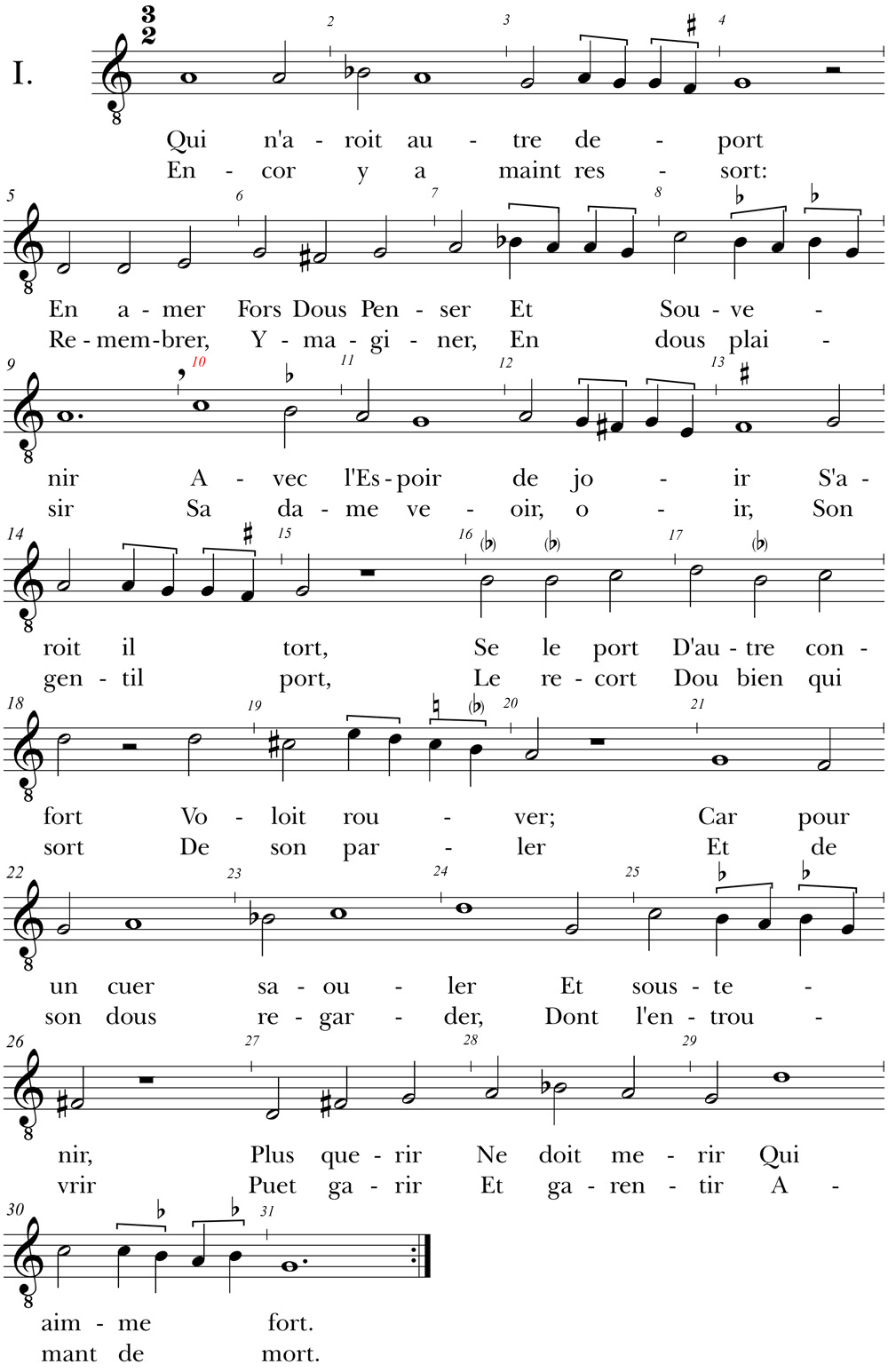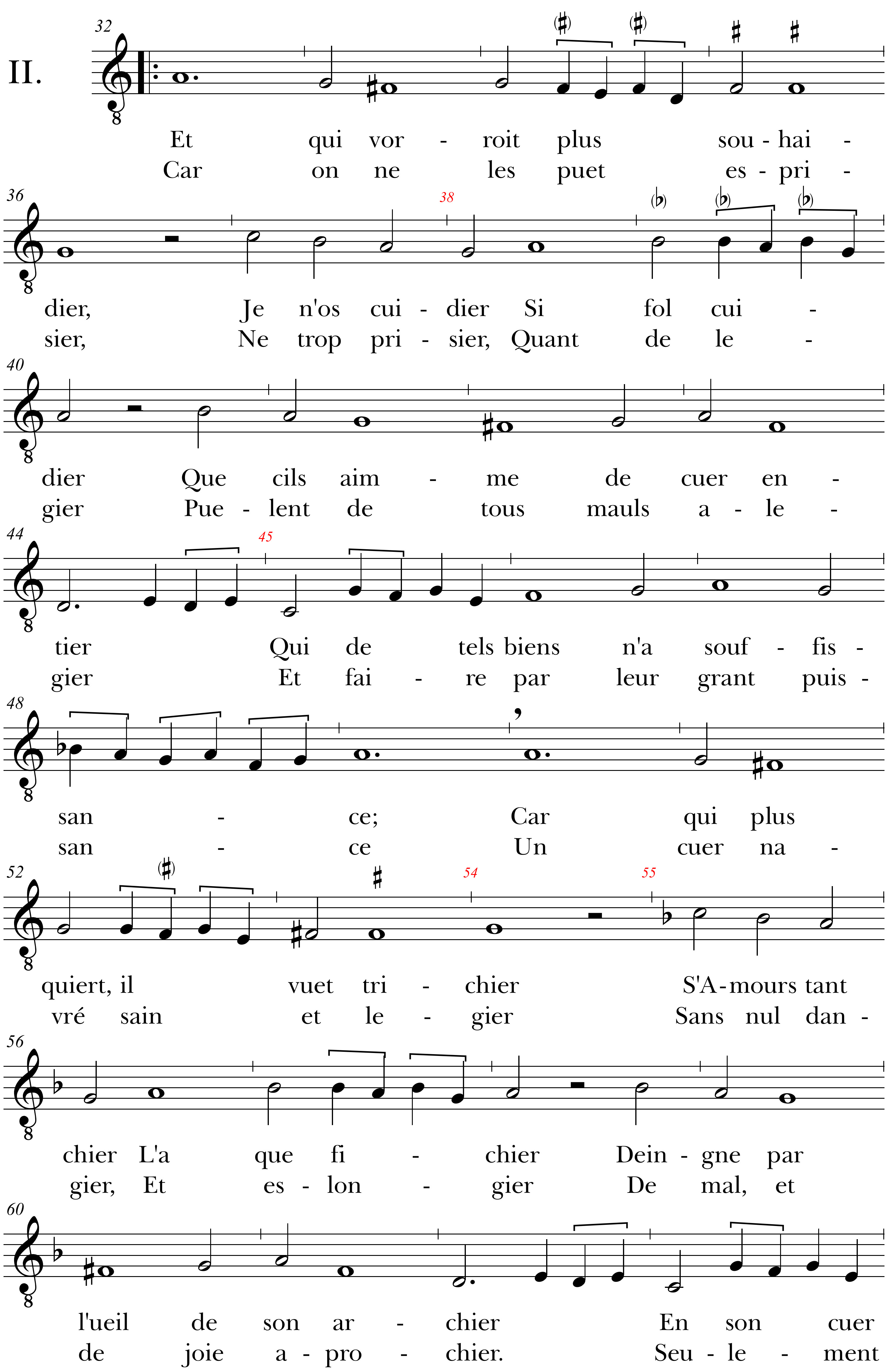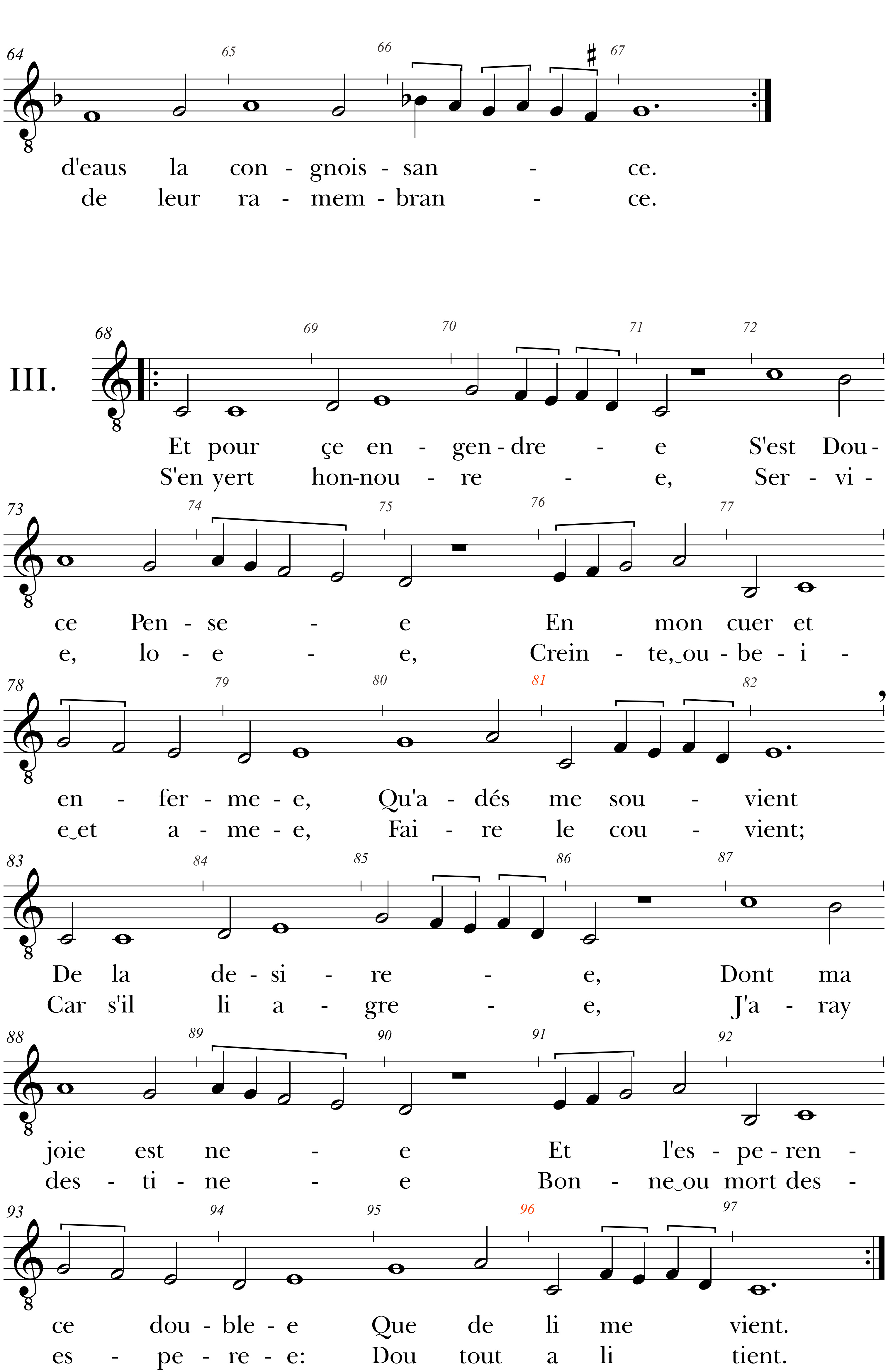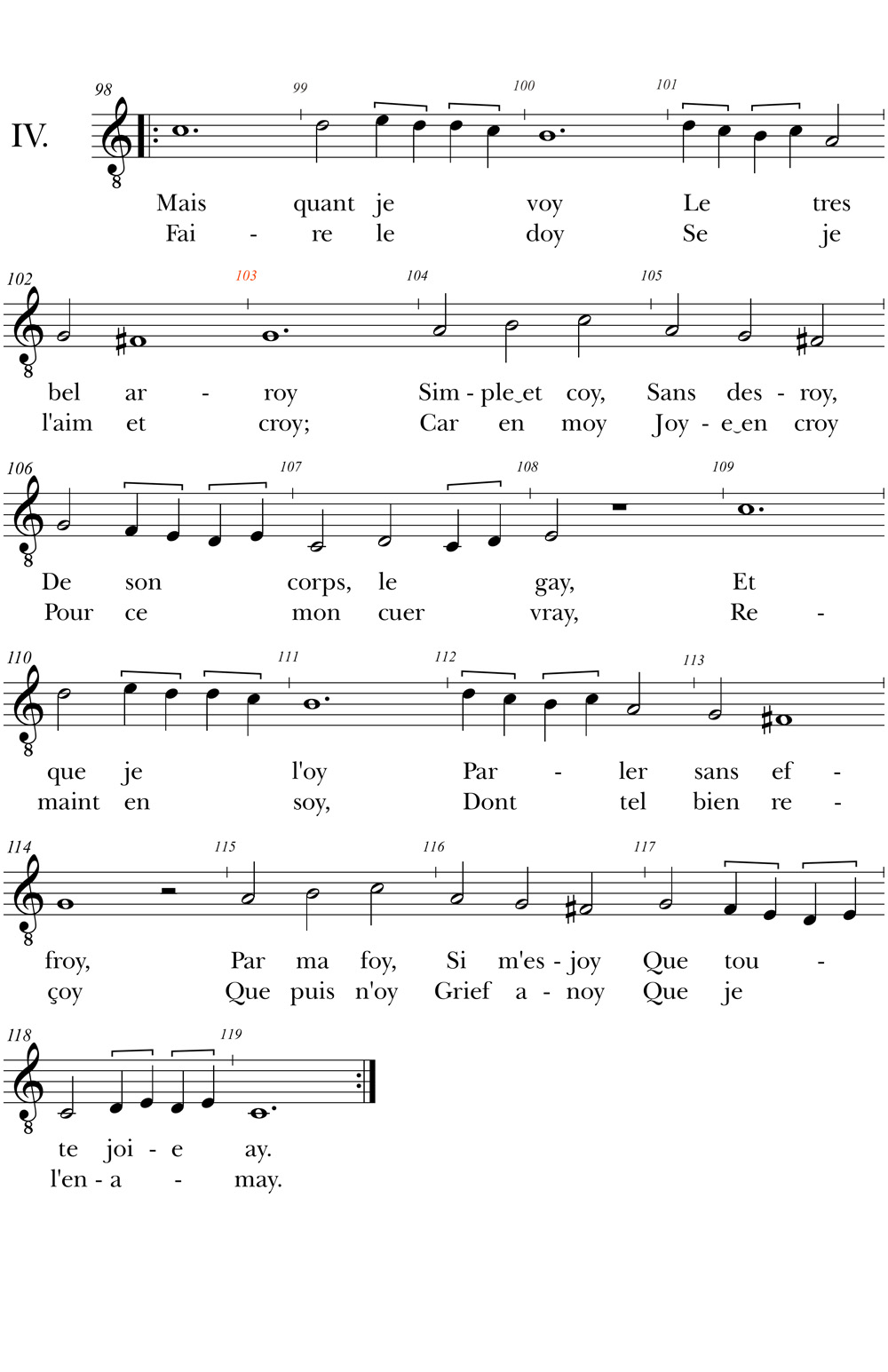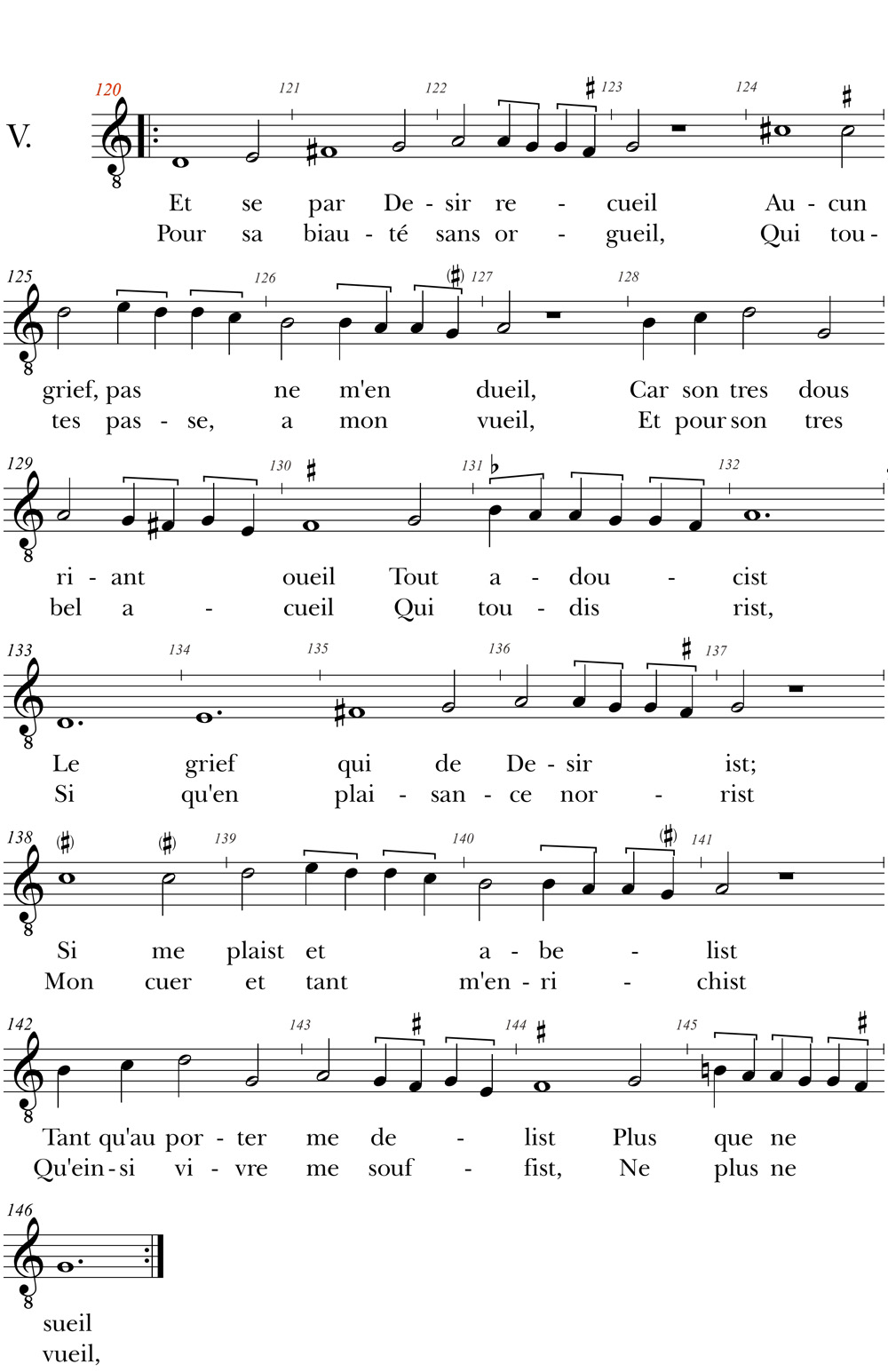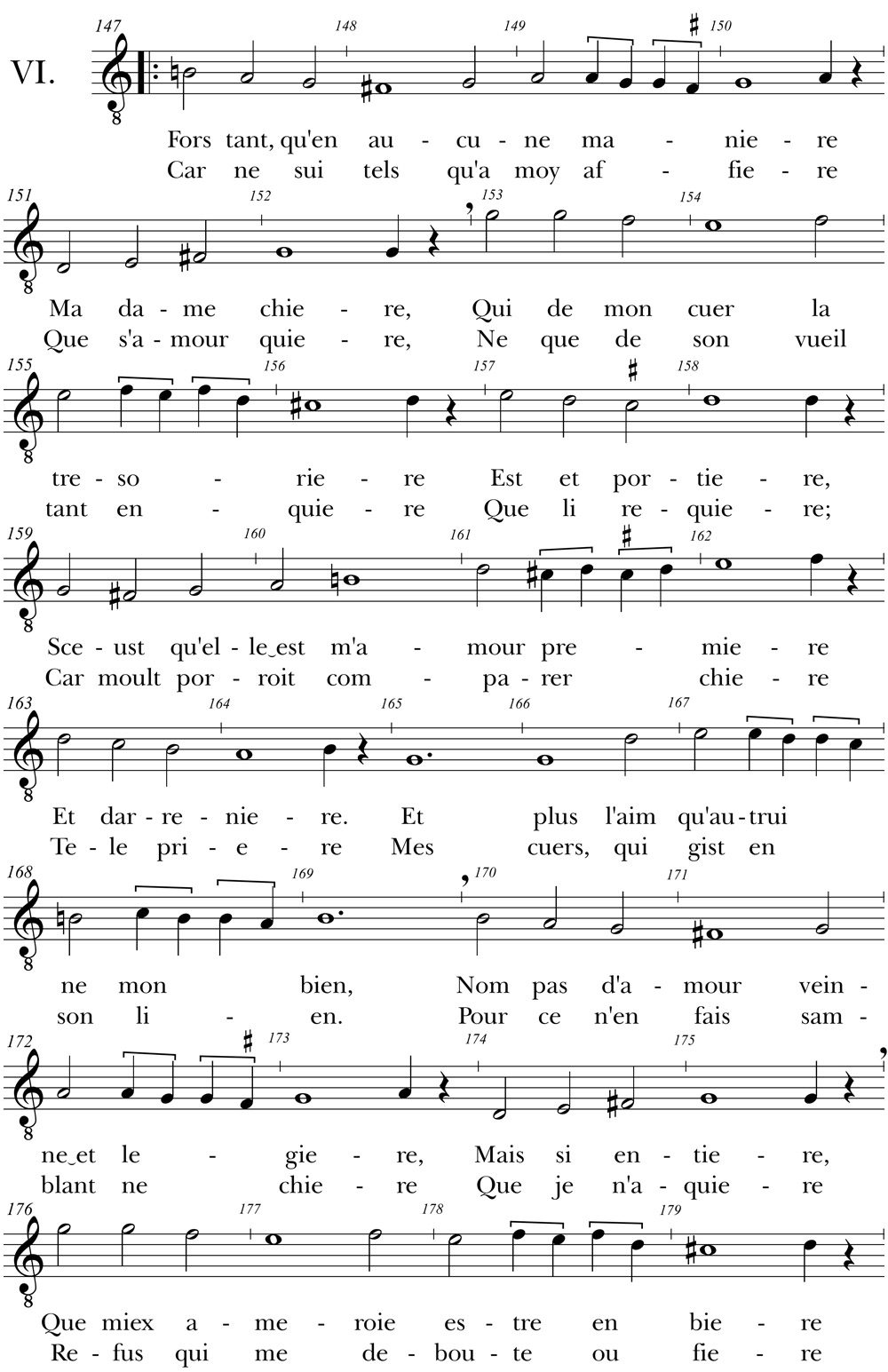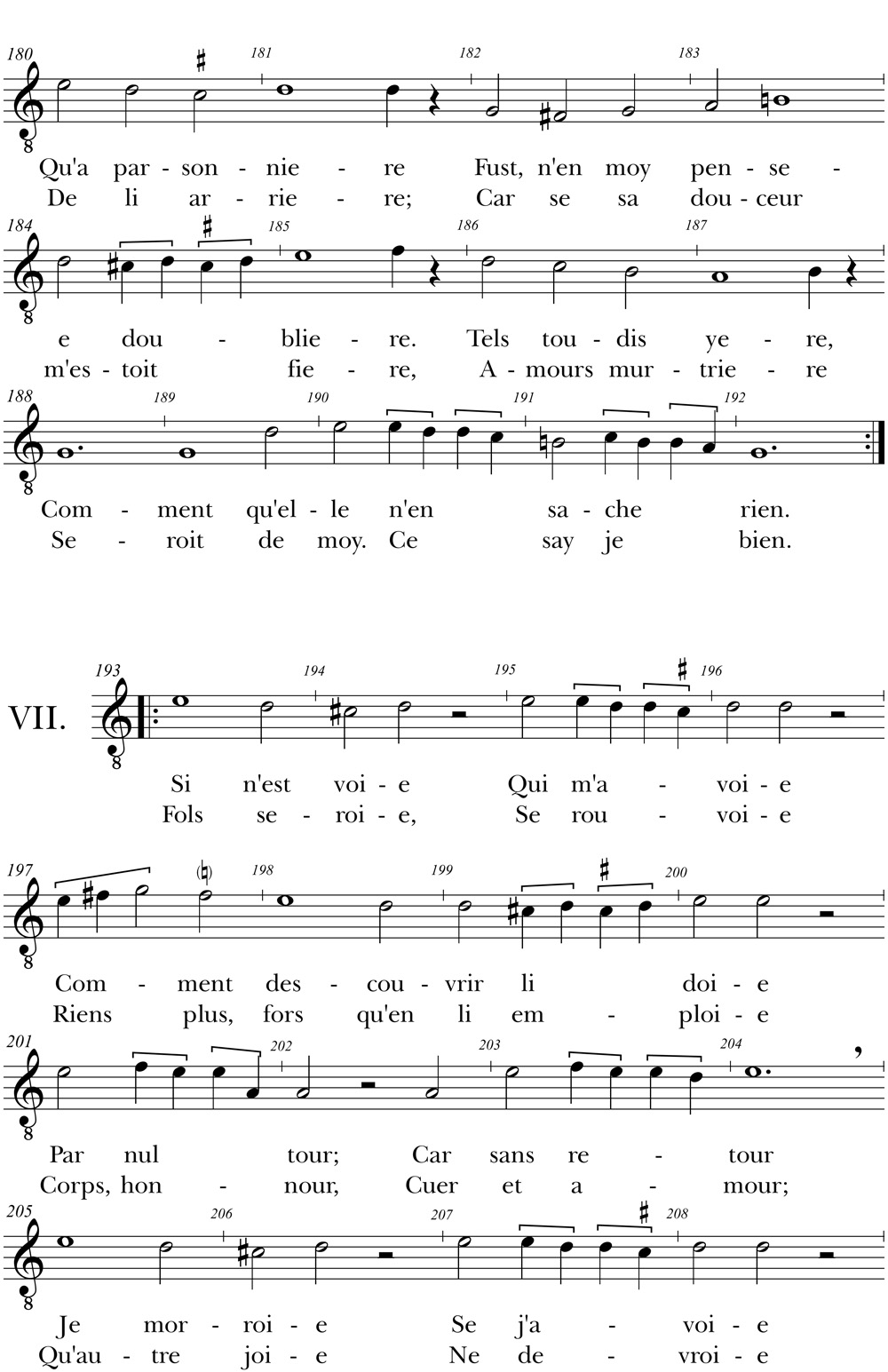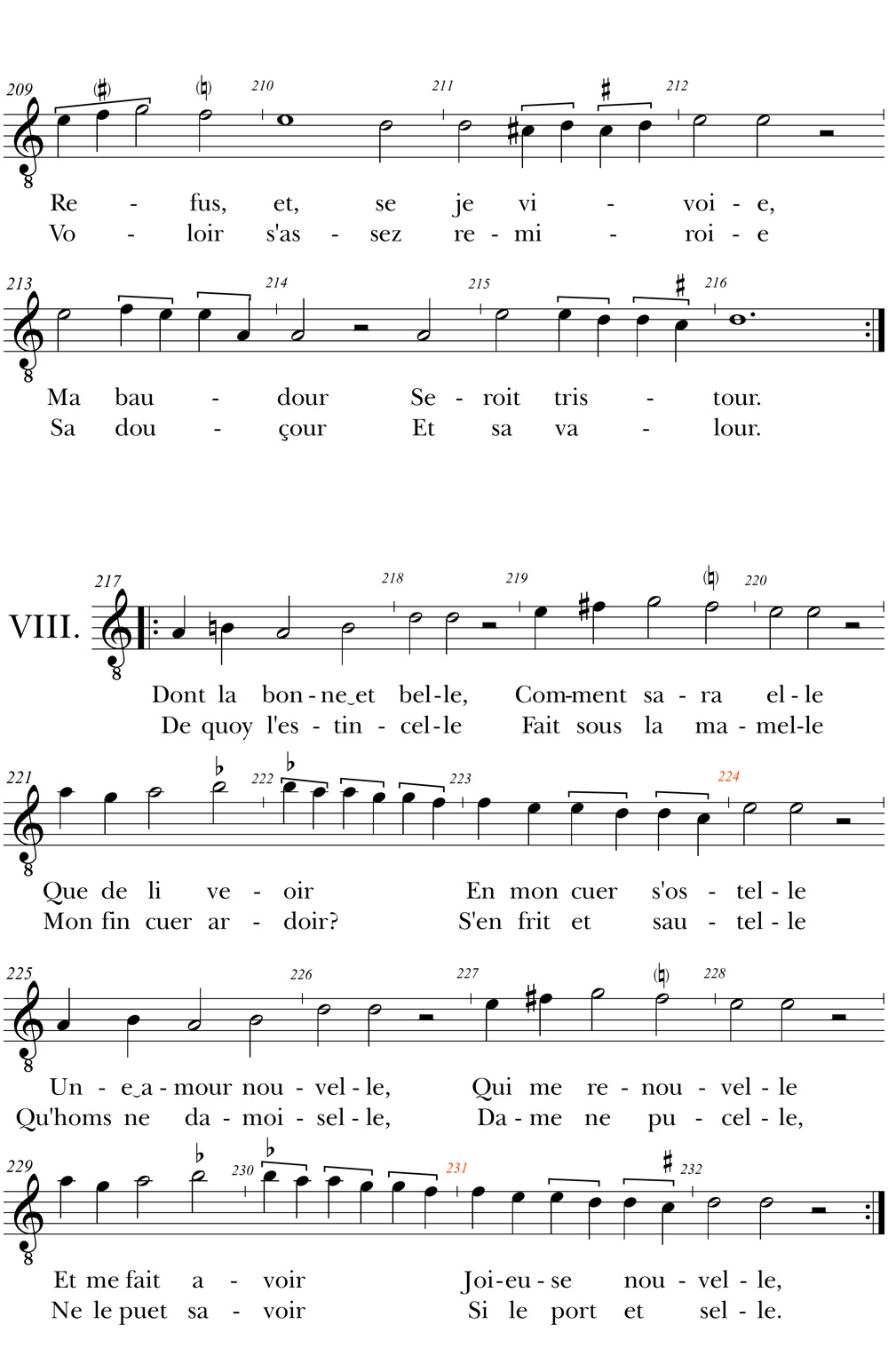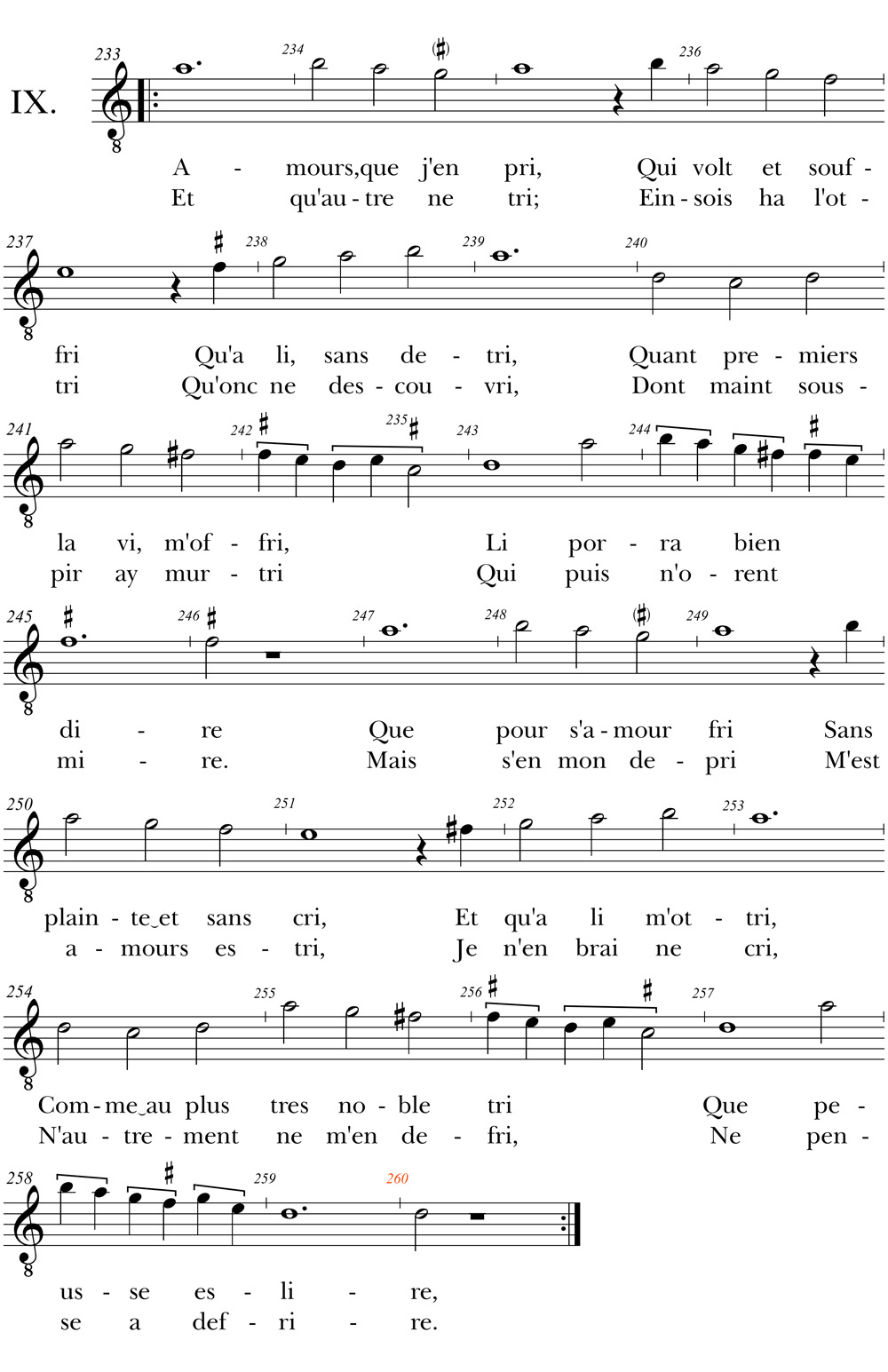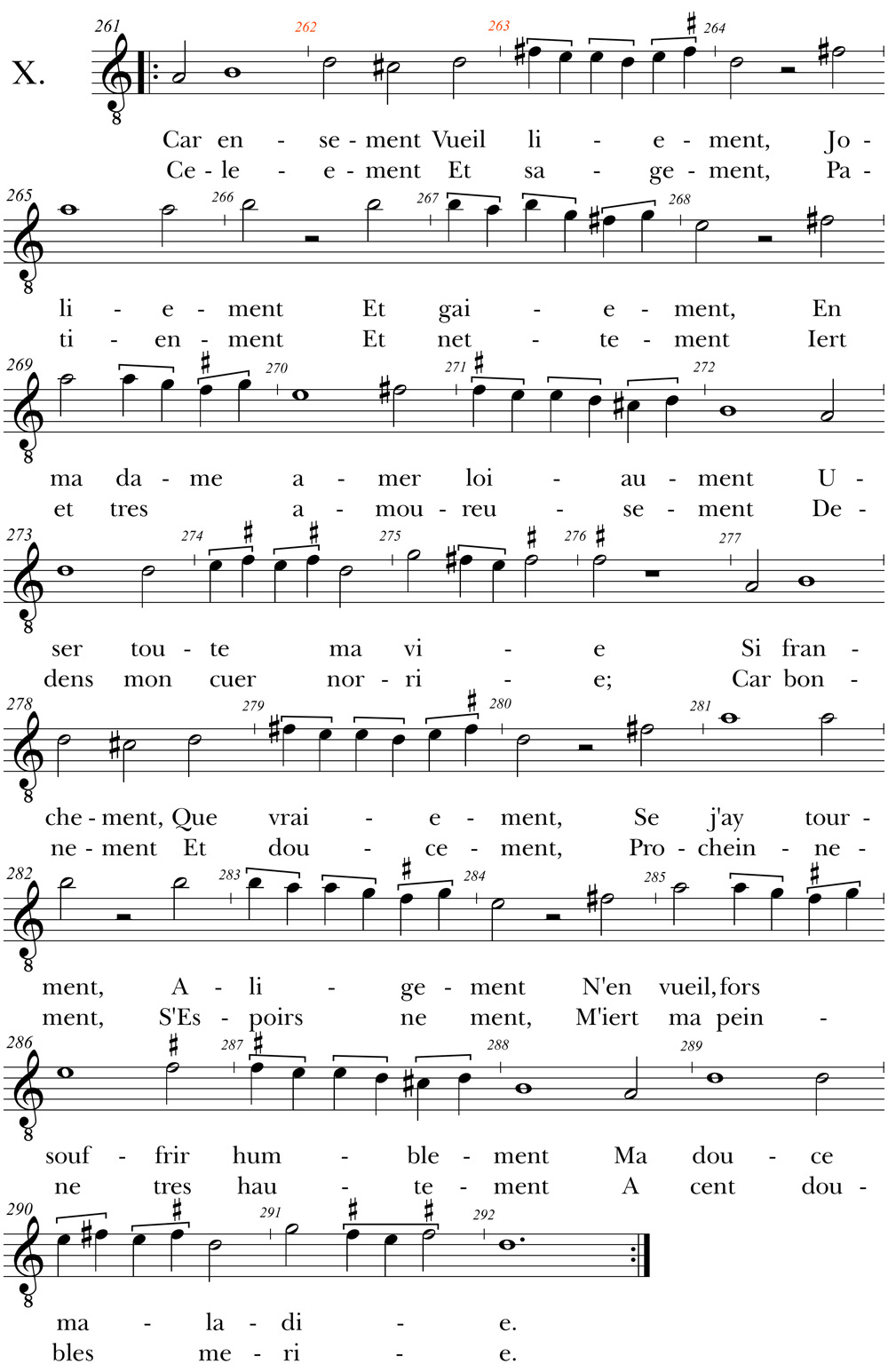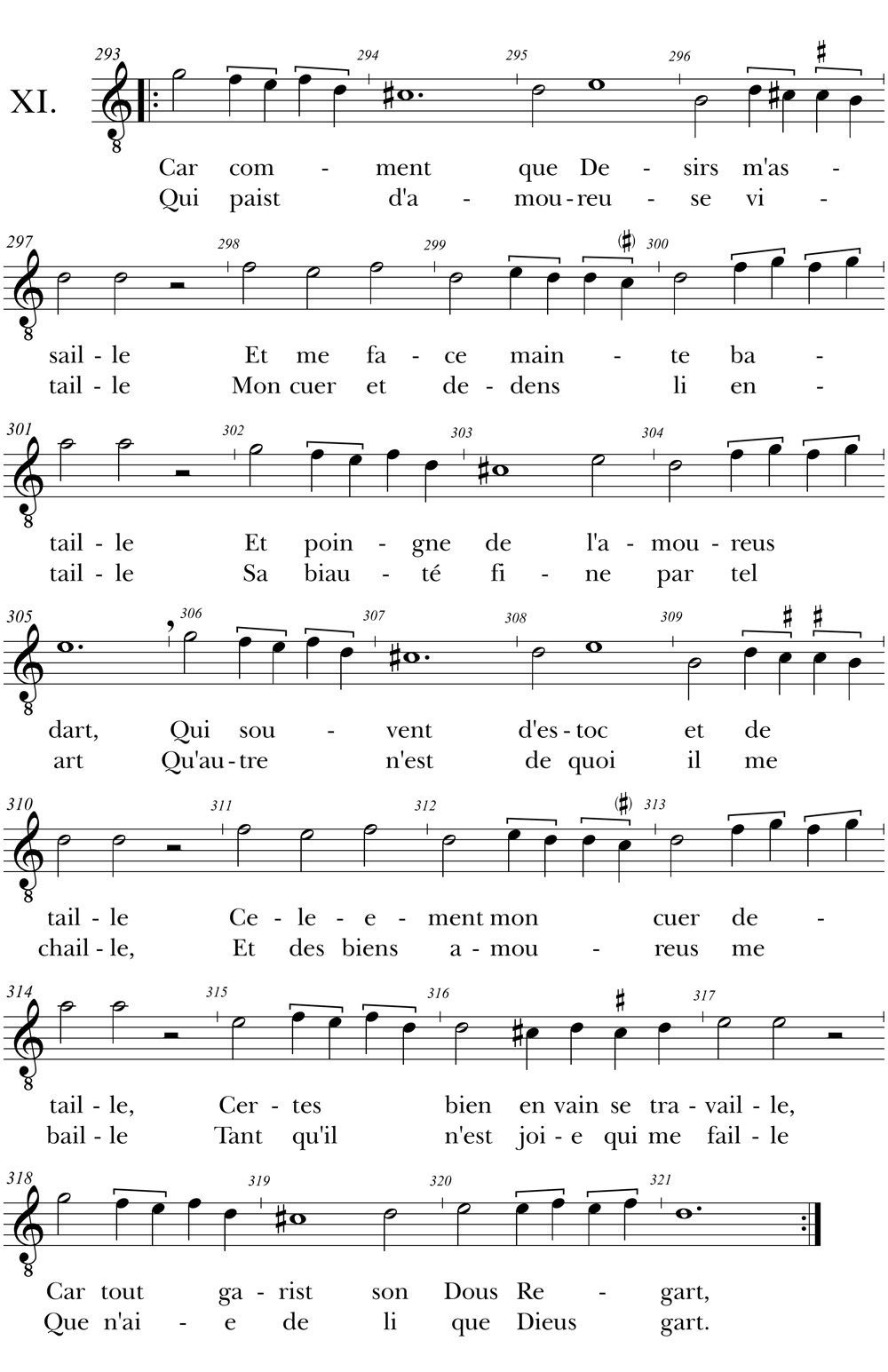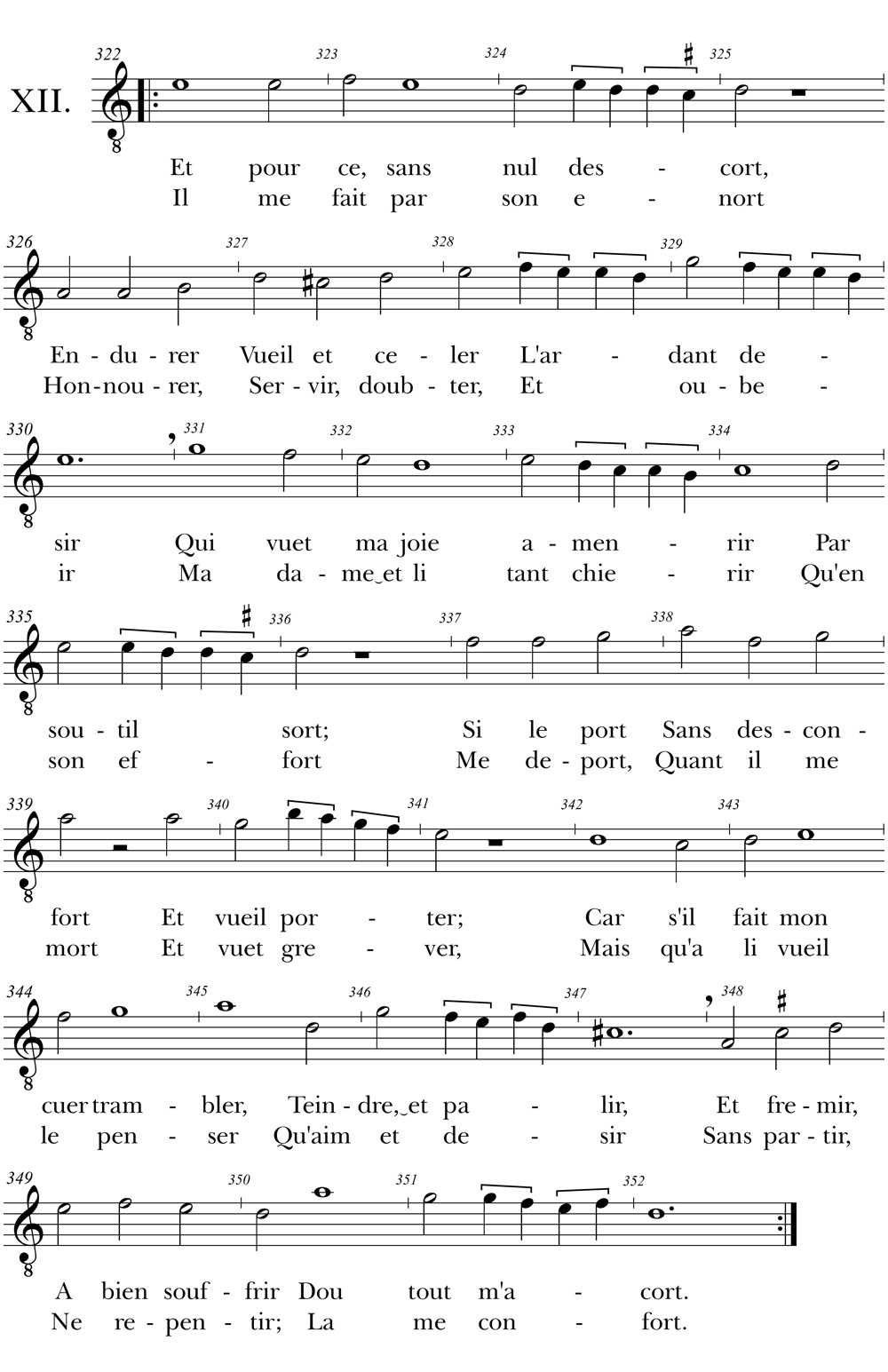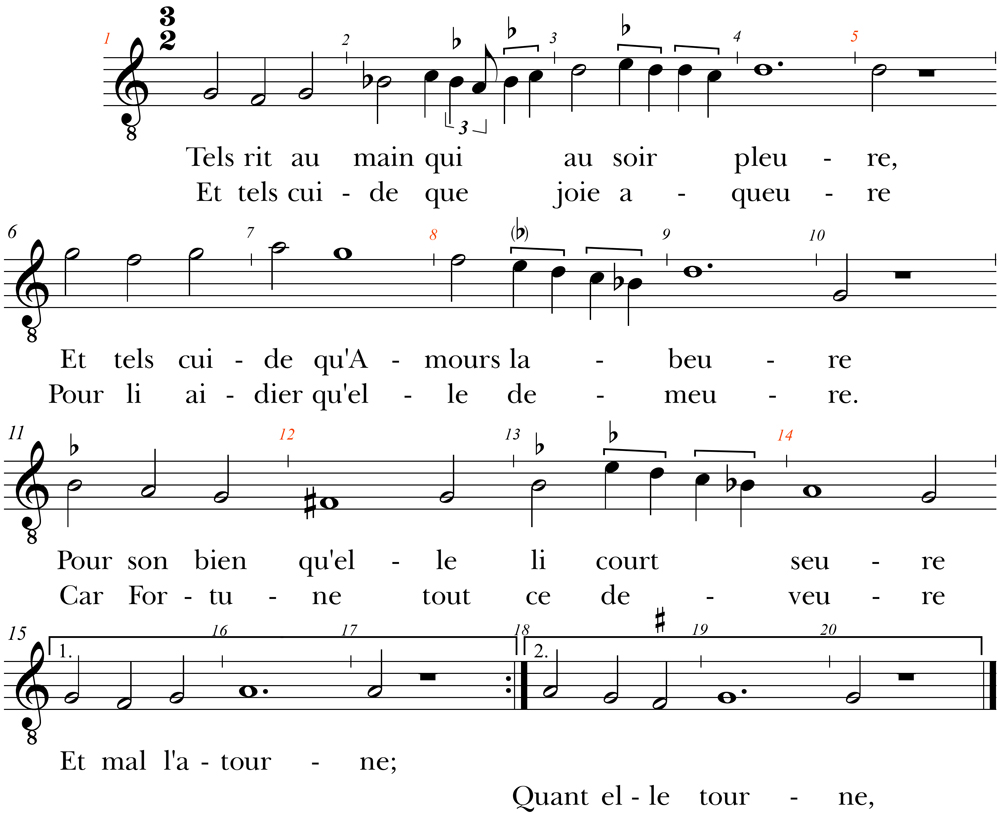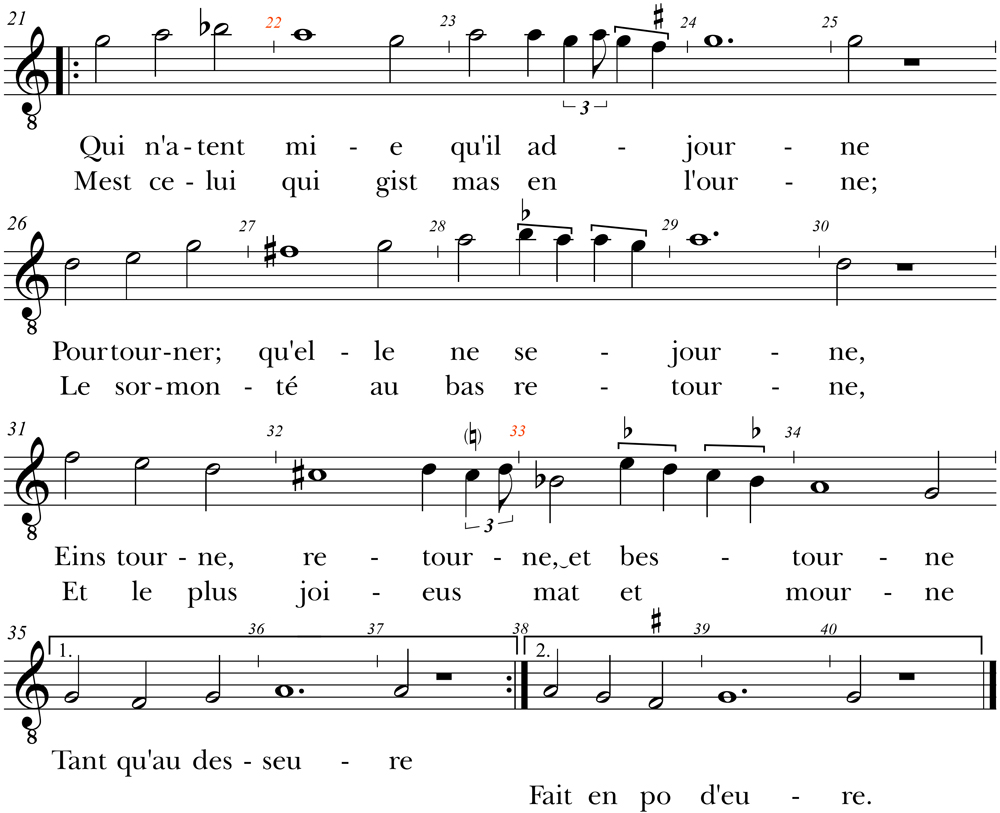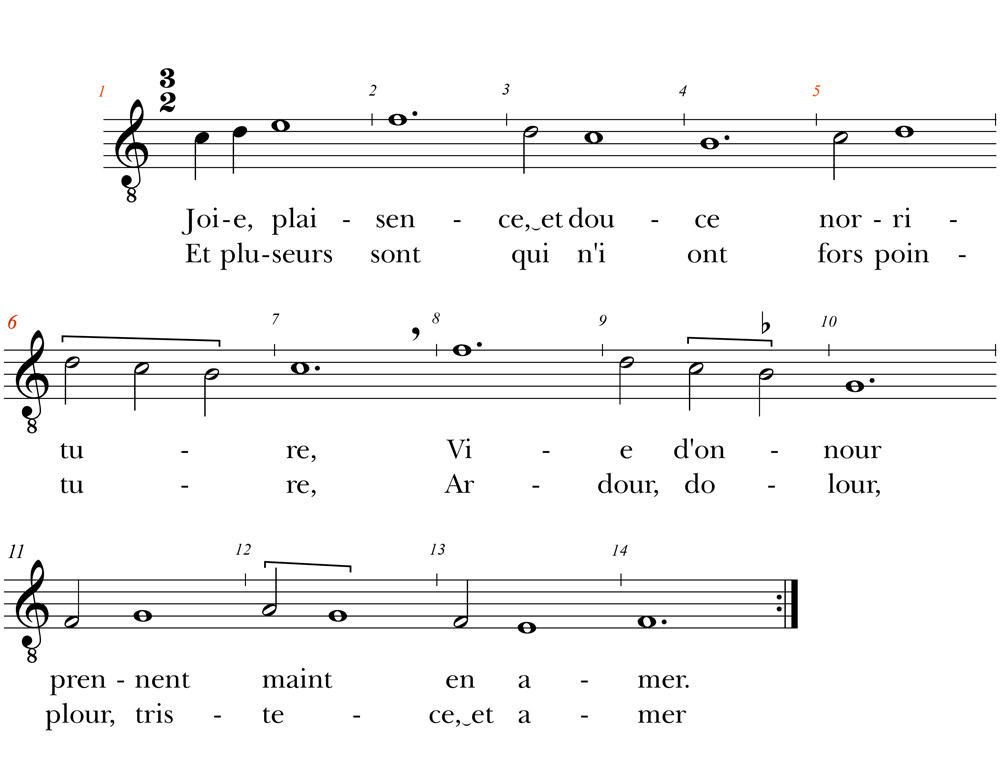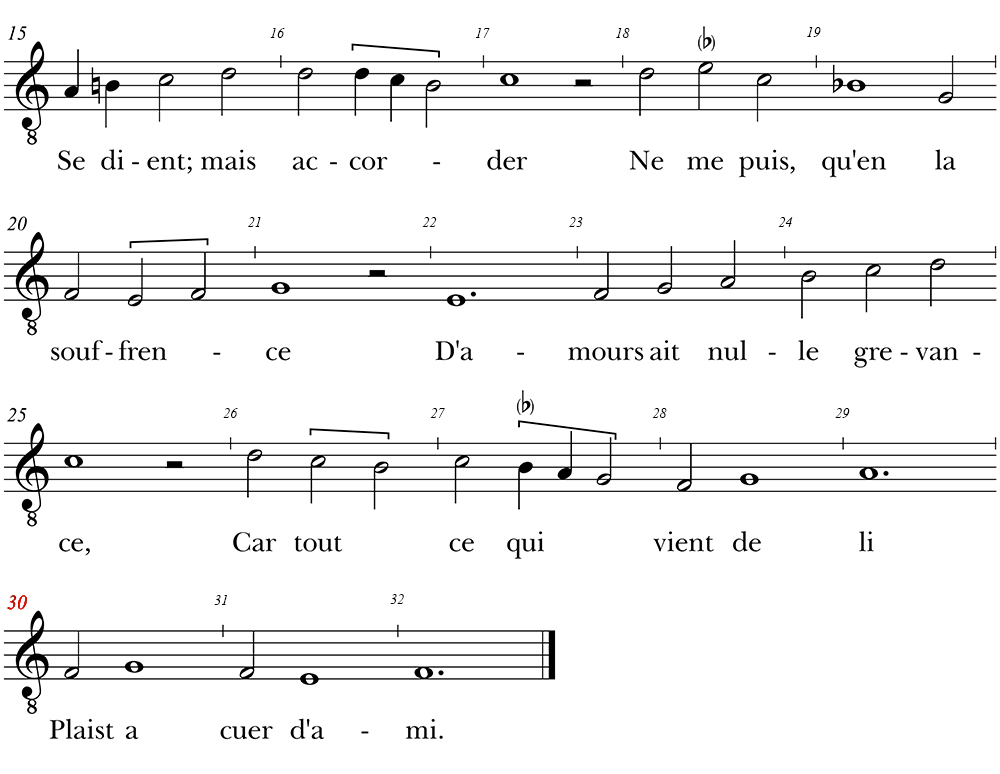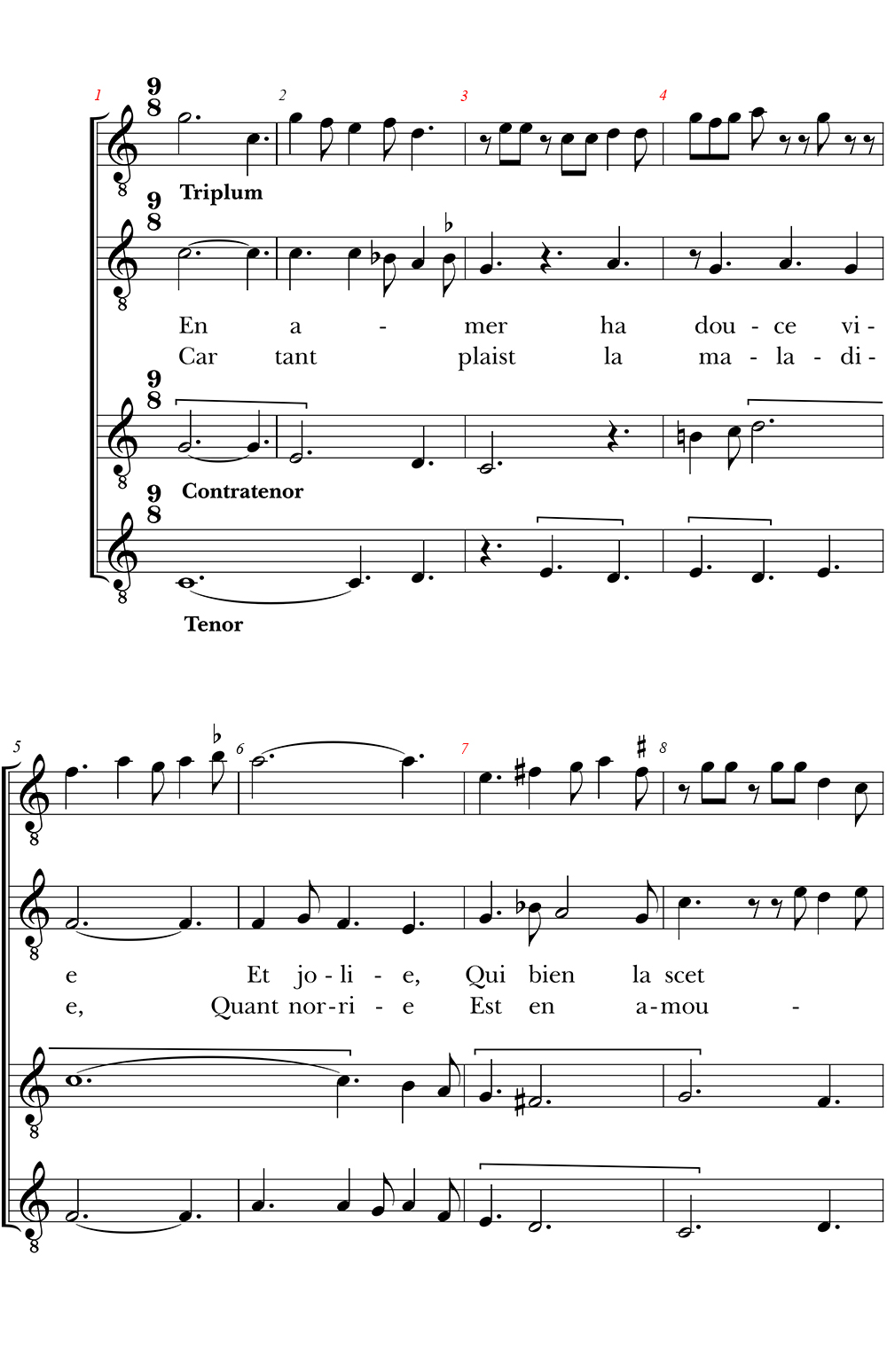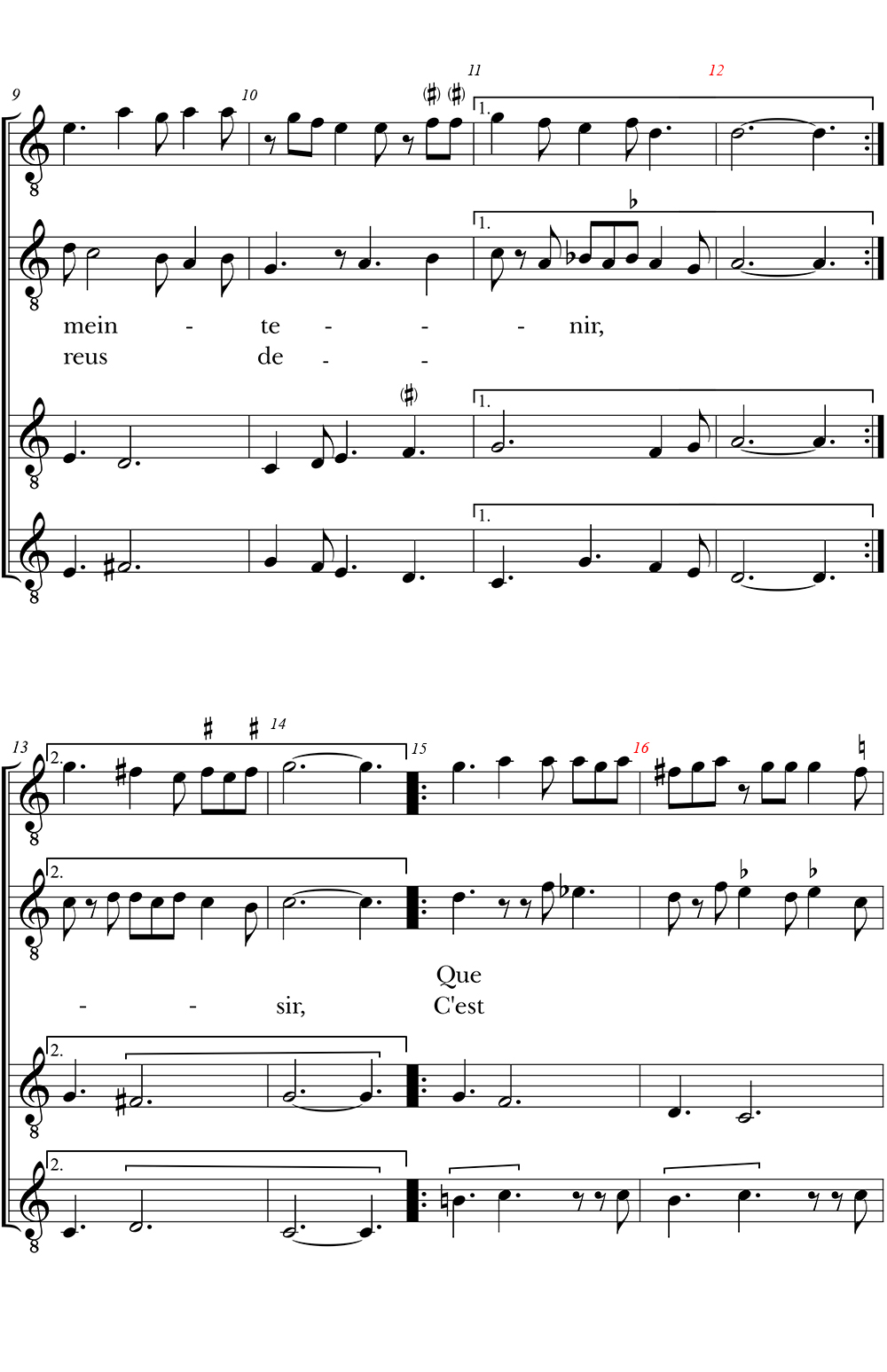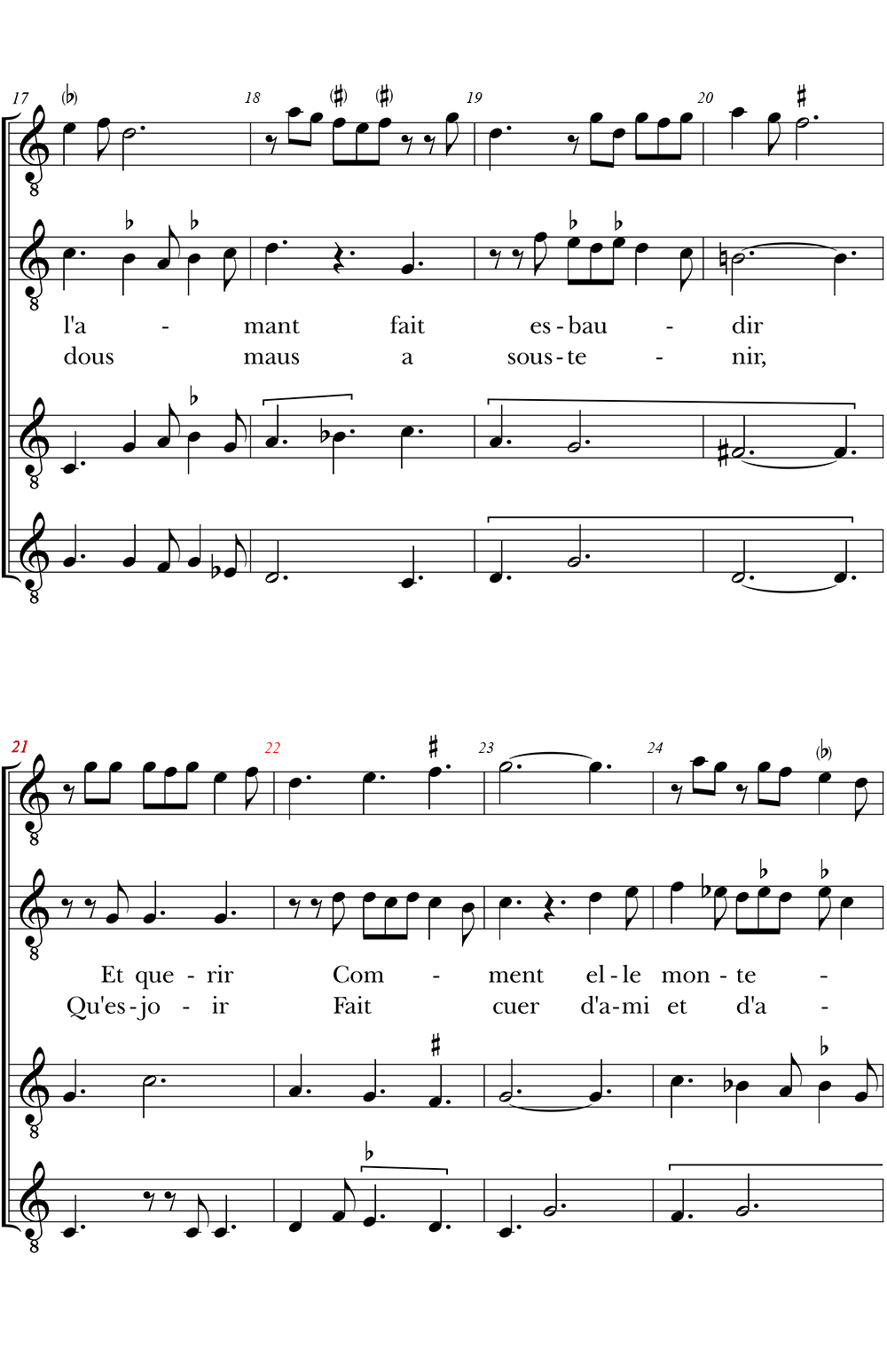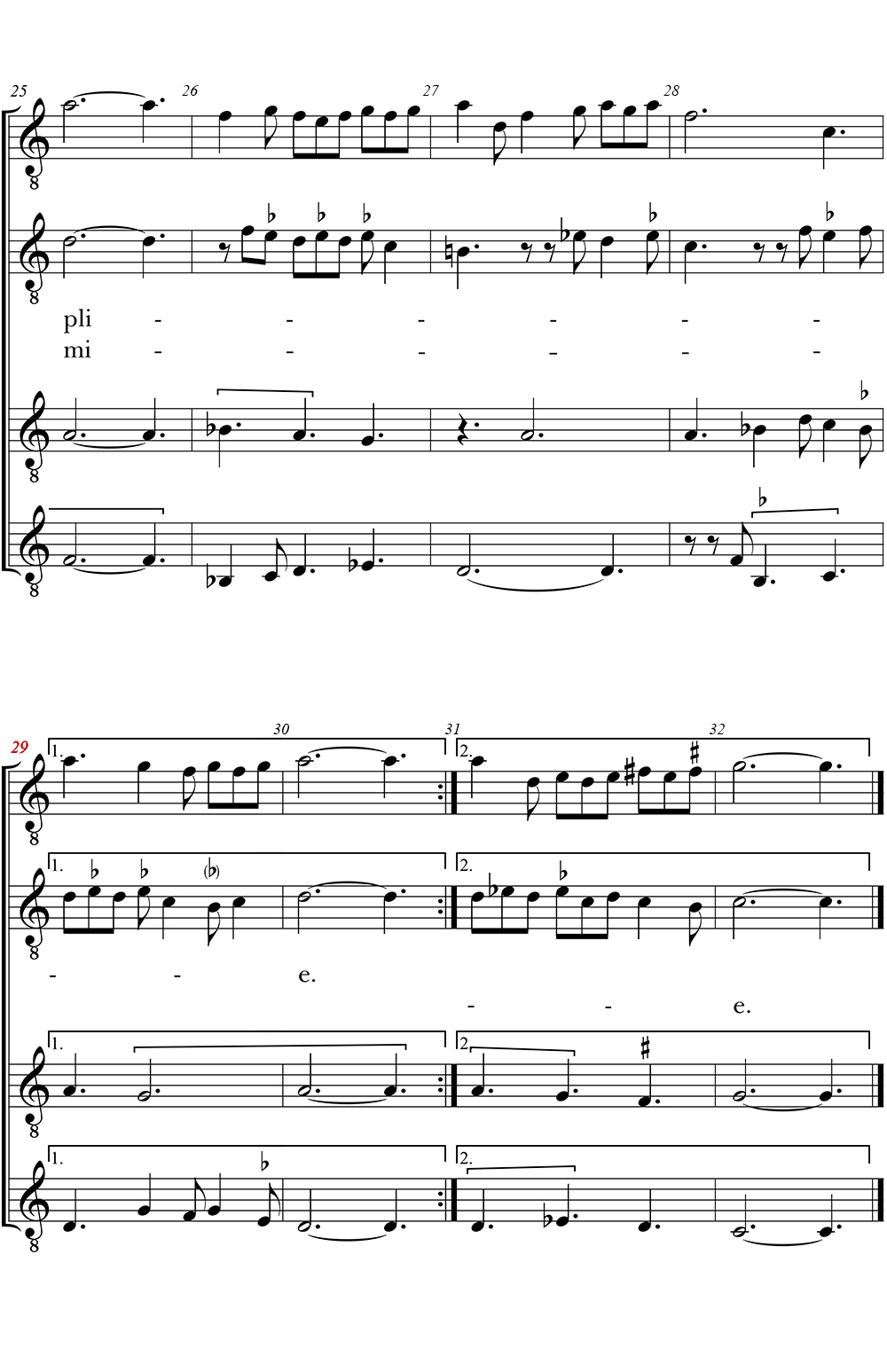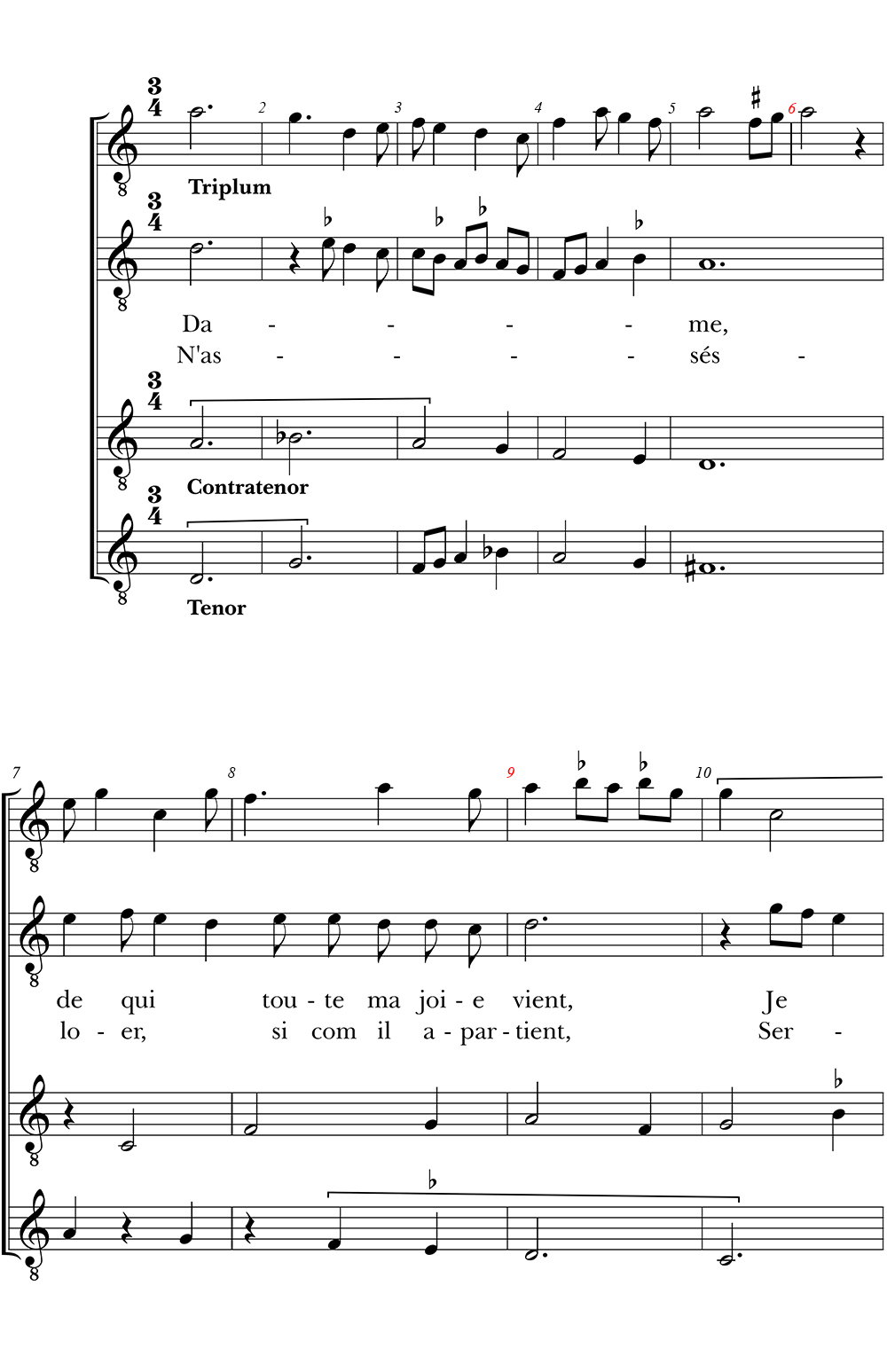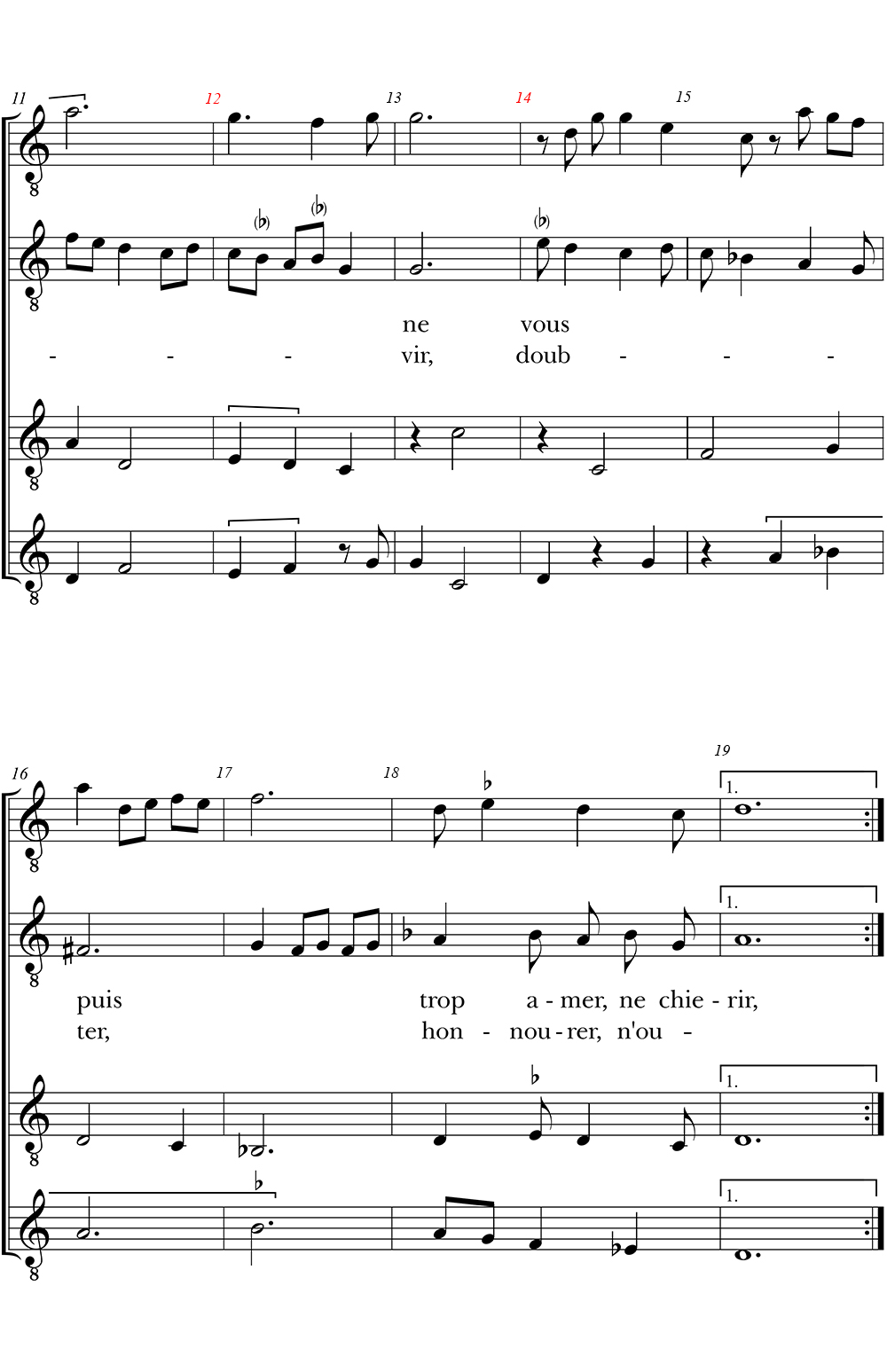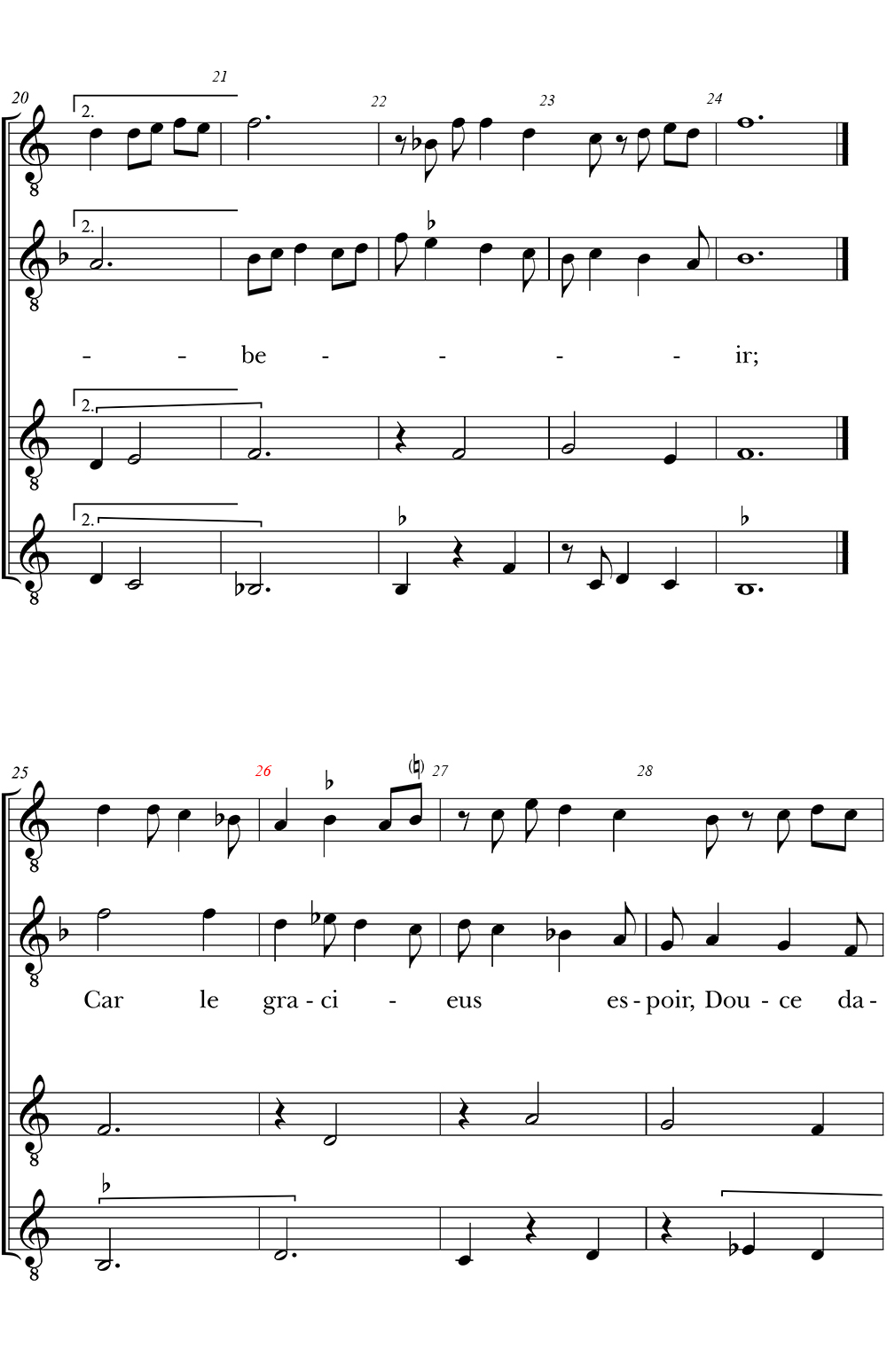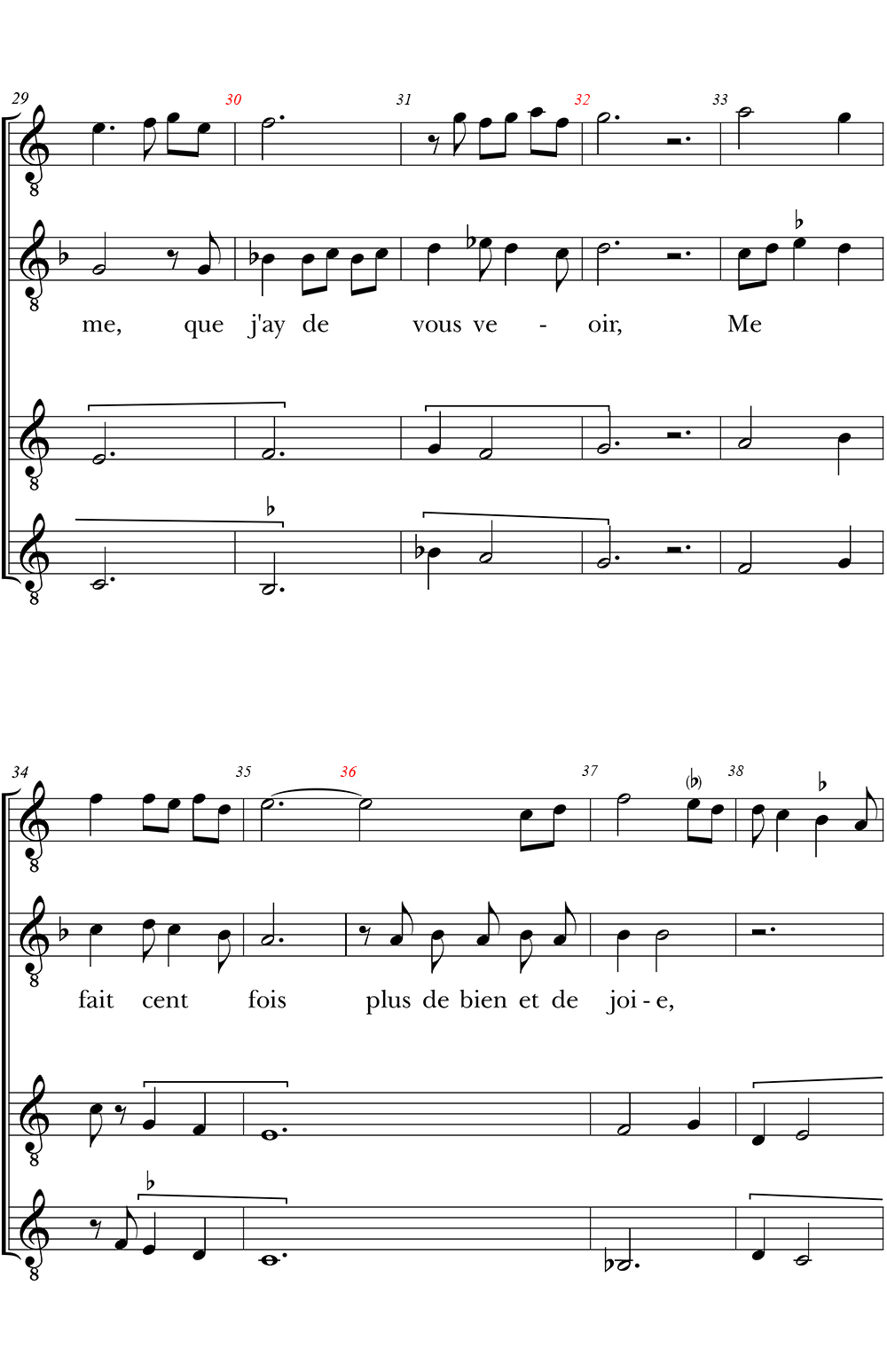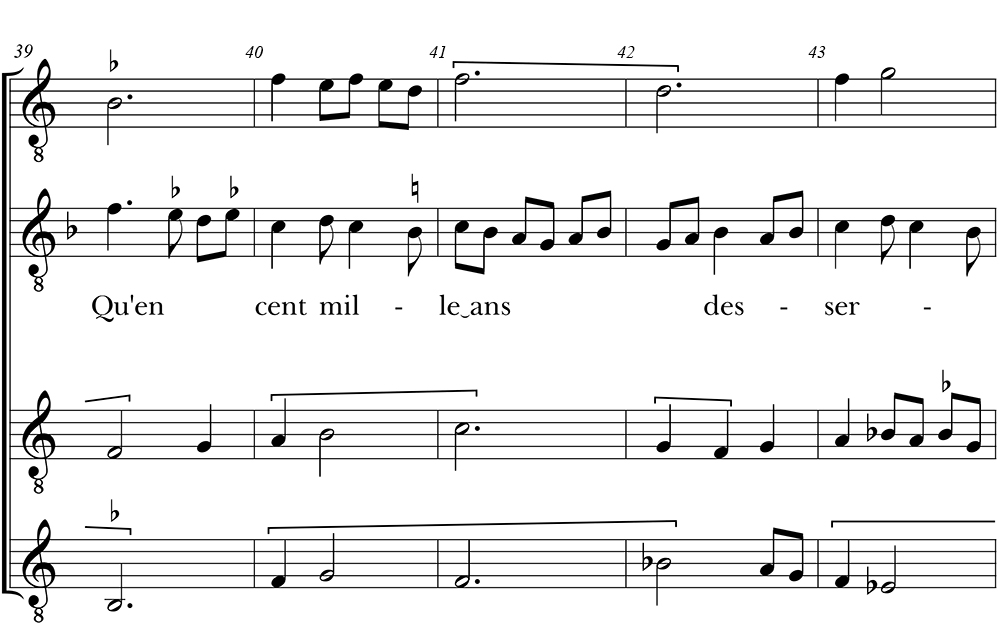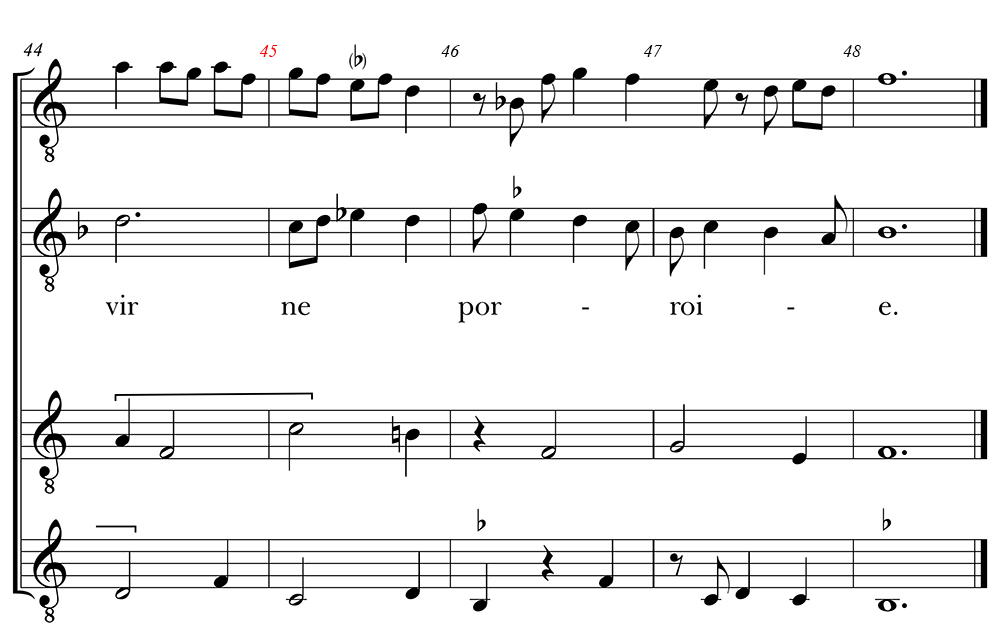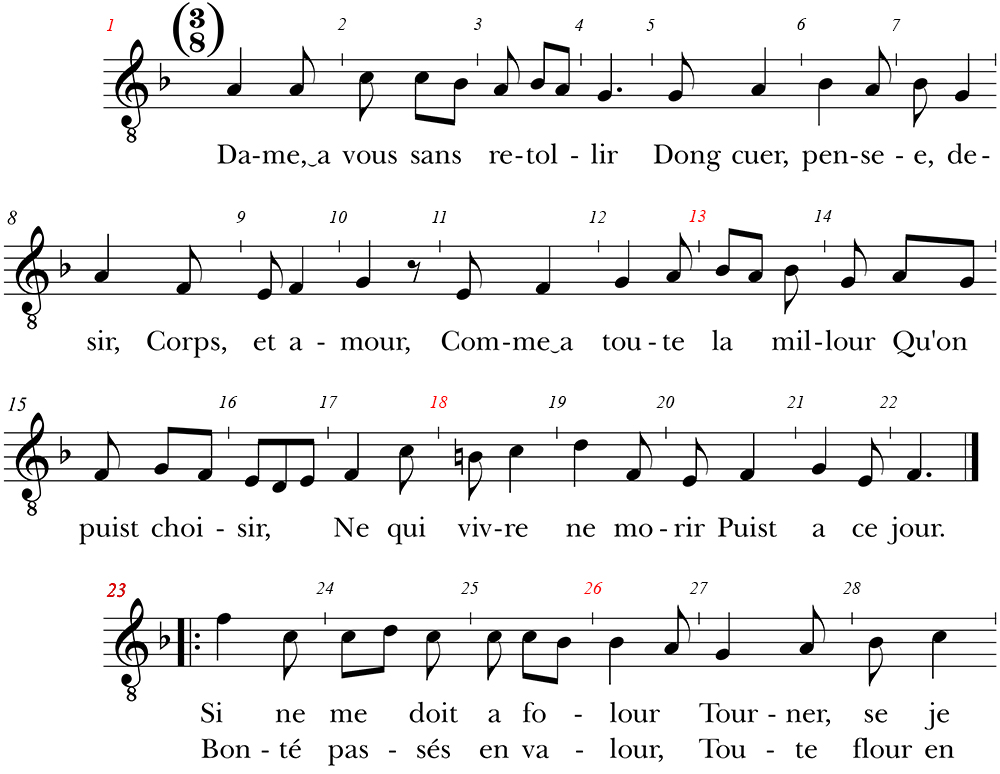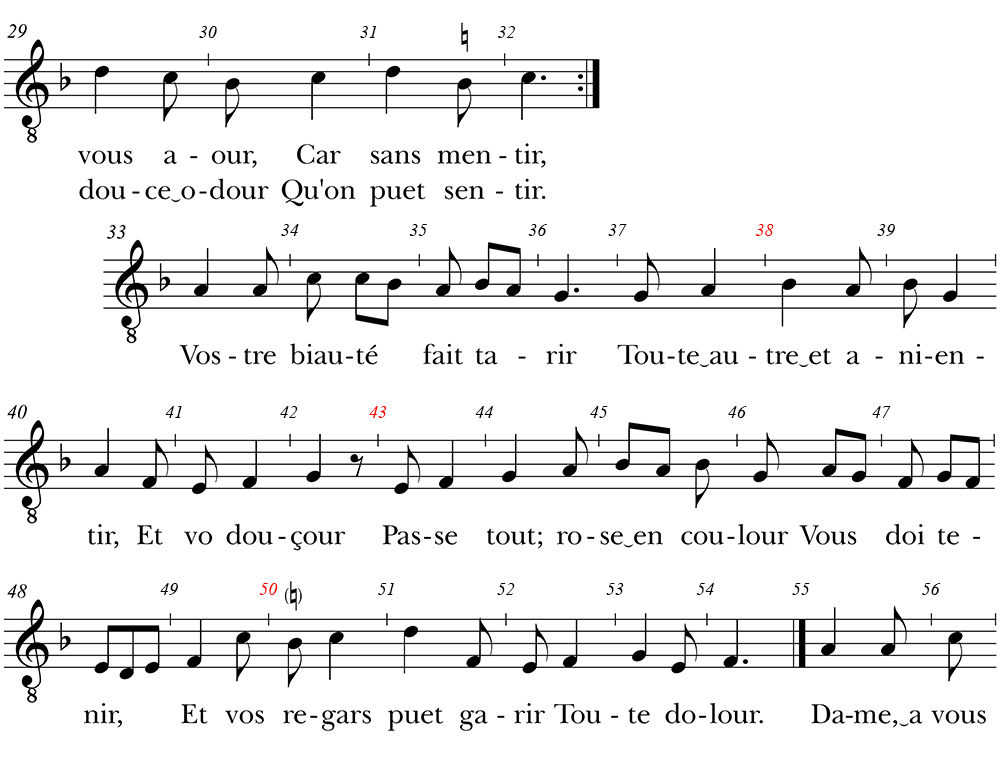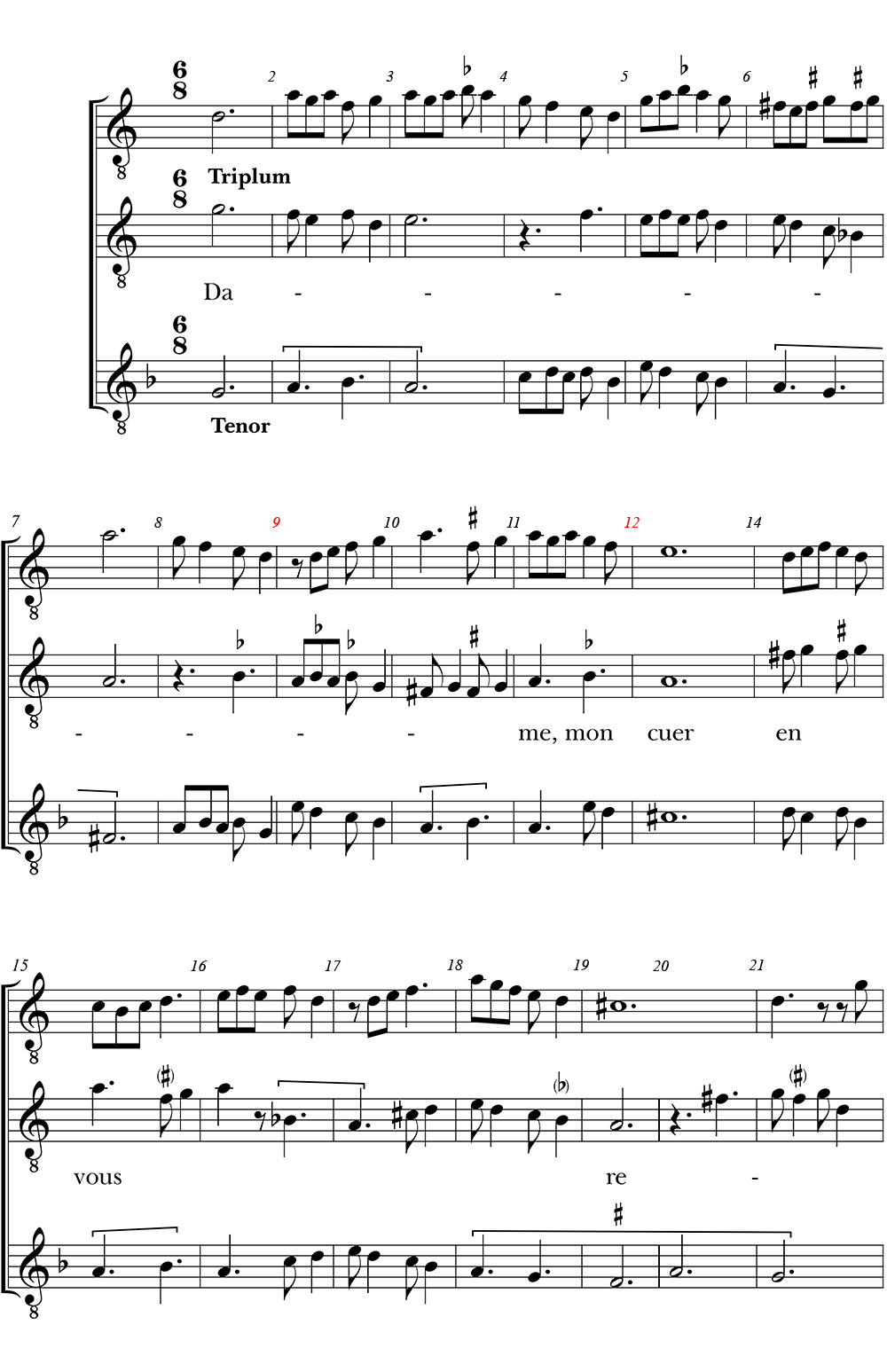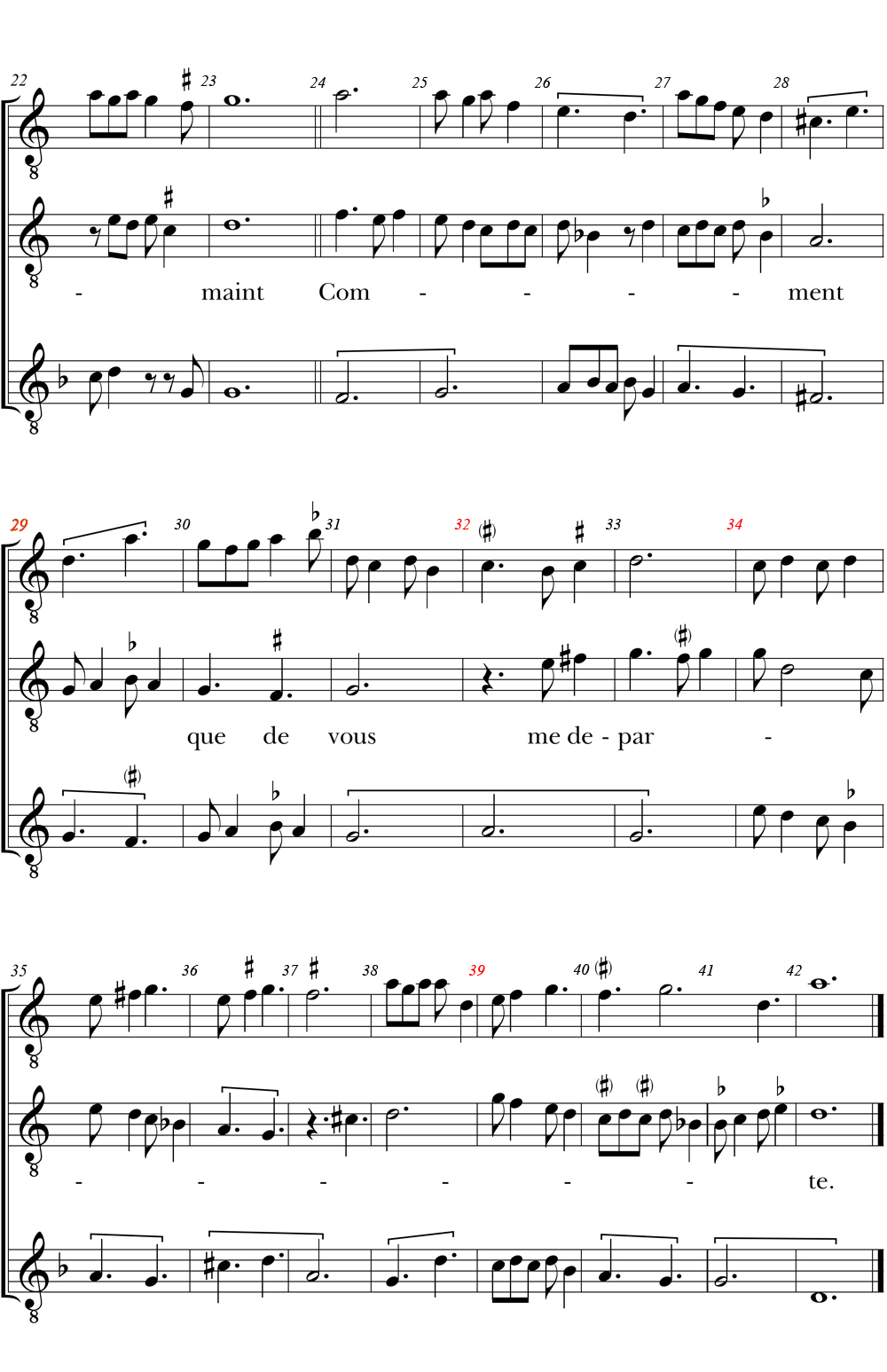905
910
fol. 56r
915
920
925
930
935
940
945
950
955
960
965
970
975
980
fol. 56v
985
990
995
1000
1005
1010
1015
1020
1025
1030
1035
1040
1045
fol. 57r
1051
1055
1060
1065
1070
1075
1080
1085
1090
1095
1100
1105
1110
1115
1120
1125
fol. 57v
1131
1135
1140
1145
1150
1155
1160
1165
1170
1175
1180
1185
1190
1195
1200
1205
fol. 58r
1211
1215
1220
1225
1230
1235
1240
1245
1250
1255
1260
1265
1270
1275
1280
1285
fol. 58v
1291
1295
1300
1305
1310
1315
1320
1325
1330
1335
1340
1345
1350
1355
1360
1365
1370
fol. 59r
1375
1380
1385
1390
1395
1400
1405
1410
1415
1420
1425
1430
1435
1440
1445
1450
fol. 59v
1455
1460
1465
1470
1475
1480
1485
1490
1495
1500
1505
1510
1515
1520
1525
1530
fol. 60r
1535
1540
1545
1550
1555
1560
1565
1570
1575
1580
1585
1590
1595
1600
1605
1610
fol. 60v
1615
1620
1625
1630
1635
1640
1645
1650
1655
1660
1665
1670
1675
1680
1685
1690
fol. 61r
1695
1700
1705
1710
1715
1720
1725
1730
1735
1740
1745
1750
1755
1760
1765
1770
fol. 61v
1775
1780
1785
1790
1795
1800
1805
1810
1815
1820
1825
1830
1835
1840
1845
1850
fol. 62r
1855
1860
1865
1870
1875
1880
1885
1890
1895
1900
1905
1910
1915
fol. 62v
1920
1925
1930
1935
1940
1945
1950
1955
1960
1965
1970
1975
1980
|
COMPLAINTE
Tels rit au main qui au soir pleure,
Et tels cuide qu’Amours labeure
Pour son bien qu’elle li court seure
Et mal l’atourne;
Et tels cuide que joie aqueure
Pour li aidier qu’elle demeure.
Car Fortune tout ce deveure
Quant elle tourne,
Qui n’atent mie qu’il adjourne
Pour tourner; qu’elle ne sejourne,
Eins tourne, retourne, et bestourne
Tant qu’au desseure
Mest celui qui gist mas en l’ourne;
Le sormonté au bas retourne,
Et le plus joieus mat et mourne
Fait en po d’eure.
Car elle n’est ferme n’estable,
Juste, loyal, ne veritable;
Quant on la cuide charitable,
Elle est avere,
Dure, diverse, espouentable,
Traïtre, poignant, decevable;
Et quant on la cuide amiable,
Lors est amere.
Car ja soit ce qu’amie appere,
Douce com miel, vraie com mere,
La pointure d’une vipere
Qu’est incurable
En riens a li ne se compere,
Car elle traïroit son pere
Et mettroit d’onneur en misere
Desraisonnable.
Se Fortune aimme, c’est de long.
Elle faut toudis au besoing,
N’elle n’a de personne soing,
Soit vil ou monde.
Et pour si fausse la tesmoing,
Qu’elle porteroit faus tesmoing
Pour le mieudre amy mettre en coing
Qu’elle ait en monde.
Plus escorche qu’elle ne tonde,
Et en mauvais malice habonde,
Par quoy sa norriçon confonde;
.I. pourri coing
Ne prise chose qu’elle fonde,
Qui vuet que ses ouvrages fonde,
En ce n’a pareil ne seconde.
Ce nom li doing:
“Lorde, borgne, fausse, et enfrune.”
De mal faire onques n’est geüne.
Tout le mont ne prise une prune,
Eins le demeinne
A la samblance de la lune,
Qui ore est pleinne, clere, et brune,
Et fourme ne clarté nesune
N’a en quinseinne
Fors tant que n’a mois ne semainne,
Jour prefix, në heure certeinne;
Eins est sa veingence soudeinne;
Chose est commune,
Car quant la personne est plus pleinne
D’onneur, de richesse mondeinne,
De son tour a niant la meinne.
Tele est Fortune.
Pren moy ij. seaus en .i. puis
Qu’assez bien comparer li puis.
Li uns est pleins, li autres vuis,
Et se l’un monte,
L’autre descent; tout einsi truis
Que Fortune par ses conduis
Monte l’un, l’autre avale, et puis
Rien n’i aconte
A roy, a duc, a per, n’a conte.
L’un donne honneur, et l’autre honte.
L’un desgrade; l’autre seurmonte.
C’est ses deduis;
Tout orgueil amolie et donte.
Mais Boëces si nous raconte
Qu’on ne doit mie faire conte
De ses annuis.
Fortune scet plus de pratique
Que ne font maistre de fisique,
De divinité, de logique,
Et mendiant
Pour trouver une voie oublique.
Elle oint, elle point, elle pique,
Elle fait a chascun la nique,
En sousriant.
L’un fait petit; l’autre fait grant.
L’un met arrier, et l’autre avant.
Or rit, or pleure, or ne scet quant
Elle aimme, si que
Si attrait sont trop decevant.
Riens ne tient qu’elle ait en couvent,
Et, pour conclure, en trebuchant
Toudis s’aplique.
Nabugodonosor figure
Qu’il vit en songe une estature
Grande et haute, qui la figure
Horrible avoit,
Et la teste d’or riche et pure,
Les bras, le pis d’argenteüre,
Ventre, cuisses de la faiture
D’arein portoit,
James de fer sus qu’elle estoit.
Des piez l’une part fer estoit,
L’autre terre. Et encor veoit
Que d’aventure
Une pierre sans main venoit
Qui parmi les piez la feroit,
Si qu’en pourre la craventoit
Et en ordure.
L’estature que ci propose
Estre ne me samble autre chose
Que Fortune qui ne repose
Heure ne jour.
La teste a d’or, se dire l’ose,
Ou toute richesse est enclose,
Ce samble aus musars qu’elle alose,
Qui en errour
Vivent tele qu’il n’est gringnour;
Qu’elle n’a pooir ne vigour
De donner, fors peinne et labour.
Retien et glose:
Car ses joies ne sont que plour,
Et ses richesses glace en four.
Pour ce fait cils trop le millour
Qui s’i oppose.
Car se tu yes en grant richesse,
Jamais n’avras vraie leesse,
Fors peinne, misere, et tristesse,
Et en doubtance
Seras dou perdre, qui trop blesse,
Ou l’ardeur aras et l’aspresse
D’Avarice, qui est maistresse
De pestilence.
Et se tu gis en mendience,
Tu n’avras mie pacïence,
Eins sera la main en balance
D’estre larnesse.
Si ne pris riens telle puissance
Ou pais, seürté, souffissance
N’a, fors doleur et mescheance,
Pleur et destresse.
Les bras et le pis a d’argent,
Mais ce n’est que decevement,
Car ce qu’il luisent clerement,
Les yex esbloe
Et aveugle de mainte gent
Cui elle promet largement,
Et en son pis couvertement
Traïson noe.
D’un des bras les met sus sa roe
Plus legierement c’une aloe;
De l’autre les fiert en la joe
Si fierement
Qu’elle les trebuche en la boe,
Et puis elle leur fait la moe.
Einsi Fortune tous ceaus doe
Qu’elle entreprent.
Ventre et cuisses porte d’arein;
Mais c’est pour moustrer plus a plain
A tous ceaus qui li sont prochain
Qu’elle se change
En pis. Ci vois tu le certain,
Que d’or est son chief premerain,
Aprés d’argent, nom pas d’estain,
Di le voir: men ge?
Or est d’arein vil et estrange.
Certes, ce n’est mie bon change.
Fols est qui a tels dons s’arrange,
Ne tent sa main.
Car par tel change elle se vange
De ceaus qu’elle flate et losange,
Et leur oste honneur et löange
D’ui a demain.
Seur james de fer est assise,
En moustrant que par nulle guise
Tempeste, orage, vent de bise,
Fait ne parole,
Ne crient cils au elle s’est mise.
Mais c’est couverture et feintise,
Car les piez ha de terre glise,
Gliant et mole.
Et quant sus pierre ne sus mole
N’est fondee, fors seur frivole,
Cils se honnist bien et affole
Qui tant la prise
Qu’il retient riens de son escole;
Qu’adés ses escoliers rigole
Et partout leur meschief flajole,
Et les desprise.
Je ne tien pas celui pour kaut
Qui vuet faire .i. ouvrage haut
Seur fondement qui riens ne vaut
Sans grant damage.
Car quant il est en plus grant saut
D’ouvrer, li fondemens deffaut,
Dont trebuchier et cheoir faut
Tout le meinnage.
Einsi Fortune la sauvage,
Quant elle a fait aucun ouvrage,
Et on est en plus haut estage,
Fait en tressaut
Venir .i. vent et .i. orage
D’aversité qui tout esrage —
Fondement, comble, et massonnage —
D’un seul assaut.
Fortune a plus de mil engiens,
Pour penre et decevoir les siens;
Mais la dolente, elle n’a riens
Que donner puist;
Promettre assez puet de ses biens,
Mais tu yes trop fols se tu tiens
Qu’il en y ait nul qui soit tiens.
En seant fuit;
Son droit lés est dous, l’autre cuit;
Le droit porte fleur, fueille, et fruit.
L’autre est desert, brehaingne, et vuit
Des biens terriens.
Le droit moult clerement reluit;
L’autre samble a l’oscure nuit;
Et mi partie est par deduit
D’or et de fiens.
Fortune est amour haïneuse,
Bonneürté maleüreuse.
C’est largesse advaricïeuse.
C’est orphenté.
C’est santé triste et dolereuse.
C’est richesse la soufferteuse.
C’est noblesse povre, honteuse,
Sans loiauté.
C’est l’orguilleuse humilité.
C’est l’envïeuse charité.
C’est perilleuse seürté;
Trop est douteuse;
C’est puissance en mendicité.
C’est repos en adversité.
C’est famine en cuer saoulé.
C’est joie ireuse.
C’est souffrance la rigoreuse.
C’est souffissance la couvoiteuse.
C’est pais dolente et rioteuse.
C’est vanité.
C’est pacïence dongereuse.
C’est diligence paresseuse.
C’est oubliance la soingneuse
Contre amité.
C’est l’arbre d’inhumanité,
Enraciné seur fausseté.
L’estoc est qu’en sa verité
Soit mansongeuse.
Les fleurs sont de desloyauté,
Et les feuilles d’iniquité,
Mais li fruis est de povreté
Dure et crueuse.
La teste a pelee a moitie.
D’un oueil rit, de l’autre larmie.
L’une joe a couleur de vie;
L’autre est com morte.
Se une de ses mains t’est amie,
L’autre t’iert mortel annemie.
Un piet a droit, l’autre clopie,
La droite torte.
Sa force est qu’en cheant est forte;
En desconfort se reconforte.
En riant mescheance aporte,
Pleur et hachie.
En confortant se desconforte;
En foulant les siens entreporte.
En tous maus faire se deporte,
Quoy que nuls die.
Fortune est par dessus les drois;
Ses estatus fait et ses lois
Seur empereurs, papes, et rois,
Que nuls debat
N’i porroit mettre de ces trois,
Tant fust fiers, orguilleus, ou rois,
Car Fortune tous leurs desrois
Freint et abat.
Bien est drois qu’elle se debat
Pour eaus avancier et combat,
Et leur preste honneur et estat,
Ne sai quens mois.
Mais partout ou elle s’embat,
De ses gieus telement s’esbat
Qu’en veinquant dit: “Eschat et mat!”
De fiere vois.
Einsi m’a fait, ce m’est avis,
Fortune que ci vous devis.
Car je soloie estre assevis
De toute joie.
Or m’a d’un seul tour si bas mis
Qu’en grief plour est mué mon ris,
Et que tous li biens est remis
Qu’avoir soloie.
Car la bele ou mes cuers s’ottroie,
Que tant aim que plus ne porroie,
Maintenant veoir n’oseroie
En mi le vis.
Et se desir tant que la voie
Que mes dolens cuers s’en desvoie,
Pour ce ne say que faire doie,
Tant sui despris.
Amours, Amours, ce m’as tu fait
Qui mas fait faire le meffait
Qui toute ma joie deffait!
Car bien puis dire
Que si estraingnis de ton trait
Mon cuer, qu’on n’en eüst mot trait,
S’avoir deüsse sans retrait
Toute l’empire.
Pourquoy me feïs tu eslire
Dame pour qui mes cuers soupire
Tant qu’il ne congnoist joie d’ire,
Et tout a fait
Me vues pour s’amour desconfire?
Quant mon dolent cuer fais defrire
Et fondre en amoureus martire,
Est ce bien fait?
Helas! Que me demandes tu?
Je t’aim de toute ma vertu.
Or me hez et m’as abatu
De haut en bas,
Et de tes verges si batu
En ta chartre ou m’as embatu
Que je me rens dessous l’escu
Veincus et mas.
Si fais trop mal se tu me bas,
Quant je me ren et que pris m’as,
Car prisonnier on ne doit pas,
S’on l’a vaincu,
Batre ne ferir en nul cas;
Eins doit on voloir son respas.
Helas! Or me bas en tes las,
Pris et rendu!
Ce n’est pas ton honneur, ce croy,
Quant je te ser en tele foy
Qu’humblement a morir m’ottroy
Se c’est tes grez
Pour ma dame que plus ne voy.
Car doubte ay (dont je me marvoy)
Que ses gentis cuers envers moy
Ne soit irez,
Dont je sui trop mal atournez,
Tristes, pensis, desconfortez,
Quant tous mes biens as destournez.
Ne say pourquoy.
S’en est mes vis descoulourez
Et mes cuers de plours saoulez,
De griés souspirs entremeslez,
Et tout par toy.
Nompourquant pas ne m’en merveil —
Quant le regart de son dous oueil
Et son cler vis blanc et vermeil
Qui resplendist
De biauté plus qu’or en soleil
Et son corps gent qui n’a pareil
De douceur, de cointe appareil
Vers moy guenchist —
Se mes regars s’en esbloïst,
Se la parole m’en tarist,
Se ma vigour en amenrist.
Car par ton vueil
Nature en moy s’en esbahist,
Et mes sens s’en esvanuist,
Dont li cuers me tramble et fremist.
De ce me dueil.
Einsi sa parfaite biauté,
Fresche et douce com fleur d’esté,
Et la mervilleuse clarté
De son viaire,
Dont je me vi enluminé,
Le ray de son oueil que plus n’é,
Mes .v. sens orent tost maté;
Plus n’en pos faire.
Helas! S’en ay tant de contraire
Que je ne say quele part traire;
N’en moy joie plus ne repaire,
Ne gaieté.
Car pour ce que j’aim sans meffaire,
Tu me vues de tous poins deffaire
Se la tres douce debonnaire
N’en a pité.
En toy en est, bien t’en couveingne,
Car je sui tiens, comment qu’il prengne.
Mais je te pri qu’il te souveingne
Comment je port
En mon cuer l’amoureuse enseingne
Dou mal d’amours qui me mehaingne,
Et qu’il n’est lieu dont il me veingne
Aucun confort.
Et se ma dame est en acort
De moy grever, je te pri fort
Que tu li moustres qu’elle a tort
Et qu’elle teingne
Tant de moy que, s’elle s’amort
A moy grever, elle m’a mort;
Et qu’elle est ma vie et ma mort,
Que qu’il aveingne.
Je n’i say autre conseil mestre
Se je ne vueil l’amer demestre.
Mais c’est chose qui ne puet estre,
Car sans mentir,
Se tous ceaus que Diex a fait nestre
Estoient tuit aussi grant mestre
Com Seneques d’art et de lettre,
Li deguerpir
Ne me feroient pour morir,
Car seur toutes l’aim et desir
C’est celle ou sont tuit mi plaisir.
C’est ma main destre.
C’est celle qui me puet garir
Et faire en joie revenir
Se de son regart mon desir
Deingnoit repestre.
Las! Dolens! Or ne m’ose attendre
Qu’envers moy fust jamais si tendre
Qu’elle seur moy deingnast descendre
Son dous regart,
Car tu me feïs tant mesprendre,
De moy partir sans congié prendre
Et sans nulle autre raison rendre,
Que tempre et tart
Me fait ce dolereus depart
Pleindre, plourer, et par son art
Fait de cent mil a meins dou quart
Mon espoir mendre.
Dont je morray, se Diex me gart,
S’elle par toy ne me depart
De ses douceurs aucune part
Pour moy deffendre.
Car mes dolens cuers tant s’esmaie,
Pour ce que m’esperence vraie
N’est pas, qu’il n’est joie que j’aie.
Ce me tourmente.
Ce me fait meinte mortel plaie.
Ce me confont; ce me deplaie,
Si qu’il n’est maus que je ne traie
Qu’autre amis sente.
Car m’amour donnay en jouvente,
Cuer, corps, ame, vie, et entente
A ma tres douce dame gente,
Plaisant, et gaie.
Las! Or langui en grief attente
Et vif en pensee dolente.
C’est le guerredon, c’est la rente
Qu’Amours me paie.
Amours, ce n’est mie raison
De moy donner tristece en don
En lieu de joieus guerredon;
Eins est pechiez
Quant je suis sans condition
Tous mis en ta subjection.
Or me mes a destruction
Et entrepiez,
Qui deüsses estre mes chiés,
Et par toy m’est li dez changiez.
Et par toy de joie essilliez
Sans occoison
Sui et de ma dame eslongiez.
Mais s’auques einsi dure m’iez
Confort n’espoir de mes meschiés,
Ne garison.
Et quant Esperence ne joint
A mon cuer, einsois s’en desjoint,
Se Fol Espoir a li se joint,
N’est pas merveille,
Puis que tu fais si mal a point
Que tu m’as maté et empoint
Par ton meffait en l’angle point,
Vueille ou ne vueille.
La n’est il biens que je recueille.
La mon vis de larmes se mueille.
La n’est il riens qui me conseille,
Ne qui me doint
Confort dou mal qui me traveille.
La sens je doleur nompareille.
La Pitez dort; la Desirs veille,
Qui trop me point.
La suis je pis qu’en continue.
La sens je doleur qui m’argue.
La tramble mes cuers et tressue.
La m’asseür
Que m’esperence est esperdue
Se la grief doleur continue
Qui tant s’est en mon cuer tenue
Que bon eür
N’arai jamais; et se j’en jur,
Diex scet que je ne m’en parjur.
Pour ce toute joie forjur,
Qu’estre perdue
Doit en moy quant j’aim de cuer pur.
Et tous adés me sont plus dur
Li mal que pour ma dame endur.
Ce me partue.
Las! Dolens! C’est ce qui efface
En moy d’esperence la grace.
C’est ce qui a la mort me chace
Et fait penser
Qu’ensement comme uns chiens de chace
Aprés sa beste fuit et chace
Et la sieut partout a la trace
Pour li tuer.
Einsi Desirs de saouler
Mes fols yex d’assez remirer
De la bele et bonne sans per
La douce face
Me berse et chasse sans cesser
Et me cuide a la mort mener.
Mais humblement vueil endurer,
Quoy qu’il me face.
Mais il n’a pas si grant pooir
De moy faire doleur avoir
Com j’ay bon cuer dou recevoir.
Or y parra.
Se pour ce que j’ay povre espoir
De ma douce dame veoir
Et qu’Amours m’a en nonchaloir,
Qu’il me fera?
M’ocira il? Il ne porra,
Car ma loiauté m’aidera.
Qu’ai je dit? Einsois me sera
Contraire, espoir.
Car puisqu’Amours me grevera
Et Fortune, qui honni m’a,
Ma grant loiauté m’ocira,
Si com j’espoir.
Car mes cuers ne se porroit feindre
D’amer ma dame ne refreindre;
Einsois est toudis l’amour greindre
Qui en moy meint,
Ne riens ne la porroit esteindre.
Car quant elle me fait plus teindre,
Dementer, gemir, et compleindre,
Tant plus m’enseint.
J’ay oï recorder a meint
Que quant uns malades se pleint
Que sa doleur fait de son pleint
Un po remeindre.
Las! Et c’est ce qui mon cuer teint.
C’est ce qui plus griefment l’ateint.
C’est ce qui tout mon bien esteint,
Sans joie ateindre
Pour ce que riens de ma pensee
Ne scet ma dame desiree,
Seur toute creature amee
Dou cuer de mi,
Ne la tres dure destinee
Qui m’est pour li amer donnee,
Et comment s’amour embrasee
Est toute en mi
Mon cuer, qui est siens sans demi,
Ne comment je pleure et gemi
Souvent pour s’amour et fremi,
Qui enflamee
Est en moy, dont je di “Aymi!
Occirez vous dont vostre ami
Entre les mains son annemi,
Dame honnouree?”
C’est de Desir, qui mon cuer flame
Et point de si diverse flame,
Qu’en monde n’a homme ne fame
Qui medecine
Y sceüst se ce n’est ma dame,
Qui l’art, qui l’esprent, qui l’enflame
Et bruïst d’amoureuse flame;
N’elle ne fine.
Fortune est sa dure voisine,
Et Amours l’assaut et le mine,
Dont morir cuit en brief termine
Sans autre blasme.
Mais s’einsi ma vie define,
A ma dame qu’aim d’amour fine,
Les mains jointes, la chiere encline,
Vueil rendre l’ame.
Et quant a par moy debatus
Me fui assez et combatus,
Et fait ma pleinte et ma clamour
De Fortune amere et d’Amour,
Des grans doleurs et des meschiés
Dont j’estoie et sui entichiés,
(Qui m’orent volut travillier
De geüner et de veillier,
De soupirs en larmes noiez),
Aussi fui com tous desvoiez
De scens, de memoire, et de force
Et de toute autre vigour. Pour ce
Estoie je cheüs en transe
Aussi com cils qui voit et pense
Sa mort devant li toute preste.
Si tournay un petit ma teste
En gettant .i. plaint dolereus,
Comme homs veins, mas, et langoreus.
Et entrouvri l’un de mes yex
Un petit, — car je ne pos miex —
Pour ce que voloie veoir
Entour moy. Mais je vi seoir
Dalés moy la plus bele dame
Qu’onques mais veïsse, par m’ame,
Fors ma dame tant seulement.
Car tant estoit parfaitement
Bele, gente, et bien acesmee,
Que se Diex de ses mains fourmee
L’eüst; s’estoit elle d’affaire
Bel, bon, gent, dous, et debonnaire.
Mais il ne me fu mie avis
Quant je l’esgardai vis a vis
Que ce fust creature humeinne
De li, ne qu’elle fust mondeinne,
Dont j’avoie moult grant merveille.
Car sa face blanche et vermeille
Par juste compas faite a point
Si que meffaçon n’i a point,
Si clerement resplendissoit
Que sa clarté esclarissoit
Les tenebres, la nuit obscure
De ma dolereuse aventure,
Et de son ray persoit la nue
Qui longuement s’estoit tenue
Tourble, noire, anuble, et ombrage
Seur mon cuer et seur mon visage
Si que, comment qu’a meschief fusse
Tel que de mort paour heüsse,
Moult volentiers la resgardoie
Pour ce qu’en veoir me sentoie
Un petitet reconfortez
De mes dures maleürtez.
Car tout aussi com d’une drame
Le bon maistre garist et drame
L’ueil empeechié de catharacte,
Dou quel il couvient qu’il abate
Par soutil engien une toie
Qui la clarté tient et desvoie,
Et li rent sa clarté premiere,
Tout einsi me rendoit lumiere
De cuer, de memoire, et de l’ueil,
Et me metoit d’umbre en soleil
Sa clarté et sa resplendeur.
Et aussi venoit une odeur
De sa douceur tant precïeuse
Et de saveur si gracïeuse
Qu’onques ne fu plus douce chose
En ciel, en mer, n’en terre enclose,
N’onques odeur ne fu si fine,
Ne douceur, tant fust enterine,
Qui n’eüst encontre lui blasme,
Tel com le fiel contre le basme;
Si que li pourpris ou j’estoie
En estoit pleins et bien sentoie
Qu’odeur de li tant douce issoit
Que ma dolour adoucissoit,
Comment que nature esbahie
Fust en moy, plus que je ne die.
Lors, comme homs qui souvent souspir,
Gettay .i. plaint et .i. souspir
De parfont cuer, acompaingniés
De plours et en larmes baingniés;
Et tournai vers li a grant peinne
Ma chiere teinte, pale, et pleinne
De maniere desconfortee,
Triste, dolente, et esplouree.
Mais nulle riens ne li disoie
Pour ce que parler ne pooie,
Eins la regardoie a estat.
Et quant elle vit mon estat,
Si en sousrist moult doucement,
Lors se treï courtoisement
Vers moy pour savoir de mon estre,
Et si me prist par la main destre
De la sienne, blanche et polie,
Pour miex savoir ma maladie;
Si senti mon pous et ma veinne,
Qui estoit foible, mate, et veinne.
Mais sa main n’ostoit a nul fuer
De la veinne qui vient dou cuer,
Car bien savoit, la bonne et sage,
Que dou cuer me venoit la rage
Qui si griefment me demenoit
Et que d’ailleurs ne me venoit.
Et quant elle ot a son plaisir
Veü mon estre, et a loisir,
Et qu’elle sot sans couverture
De mon mal toute l’encloüre,
Et qu’en tele doleur estoie
Des maus d’amours que je sentoie,
Com celle qui la theorique
Toute savoit et la pratique
Qu’il failloit a ma medecine,
Et qui bien congnoissoit l’orine
Des yex dou cuer, qui fondanment
Estoit faite amoureusement
Et qui plus savoit de confort
Que Fortune de desconfort,
Et qui conforter me voloit
Des maus dont mes cuers se doloit,
Car il n’est viande si sade
Com bon confort a un malade
— Com fisicienne soutive,
Sage, aperte, et confortative,
D’une bele vois, clere et seinne,
Plus douce que nulle douceinne,
Me dist, quant elle m’ot sentu:
“Dous amis, comment te sens tu?
Et d’ou te vient ceste dolour
Qui einsi desteint ta coulour?
Certes, je croy qu’elle te teingne
Au cuer et que d’amer te veingne.
Si ne te dois pas desconfire
Einsi, ne toy mettre a martyre,
Car c’est grant honte et grans deffaus
Puis que tu n’ies mauvais ne faus
Envers ta dame que tu aimmes,
Quant pour li amer las te claimmes.
Je t’ay pluseurs fois öy dire
Que tu ne vosisses eslire
Autre bien n’autre souffissance,
Fors que de sa douce sanblance
Souvenirs et Douce Pensee
Fussent en toy sans dessevree,
Et que cil .ij. te garissoient
De tous les maus qui te venoient.
A qui tient il que ne les aies?
Il tient a toy qui trop t’esmaies,
Car ta dame, de jour en jour,
Croist en biauté sans nul sejour,
En douceur, et en tout le bien
Qu’on puet penser, ce sai je bien.
Et quant elle croist et abunde
Plus qu’en dame qui soit ou munde
En tout ce qu’on puet bon nommer,
Tu ne te dois pas las clamer
Se tu l’aimmes bien, n’esmaier
Qu’elle ne te doie paier
Plus mil fois que ne dessers
En ce que tu l’aimmes et sers.
Et aussi c’est chose petite
A li de rendre a toy merite.
Car tout le menre guerredon
De qu’elle te puist faire don,
Dont elle a sans fin et sans nombre,
Vaut .vc. fois, s’a droit le nombre,
Plus que desservir ne porroies,
Se tu l’amoies et servoies,
Nom pas tous les jours de ta vie,
Mais autant com la monarchie
De ce monde porra durer.
Et loiaument te puis jurer
Que tous les jours, en mil manieres,
Riches, precïeuses, et chieres,
Elle te guerredonneroit
Que ja plus povre n’en seroit;
Que biens en li tant s’abandonne
Que plus en a quant elle plus donne,
Mais que bonne Amour s’i consente.
Et quant Amours t’a mis en sente
De sa bonne grace esperer,
Tu ne te dois pas desperer
Pour un petit de mesprison,
Quar mauvaistié ne traïson
N’i ot, quant a la verité,
Fors paour, honte, et nisseté
Avec Amours qui s’i mesla,
Quant servis fus de ce més la
Qui te mist en cuer l’apostume,
Dont ta douceur en amer tume.
Encor dois tu penser aussi
Pour toy mettre hors de soussi —
Non mie penser, mais savoir,
Se tu vues pais et ioie ravoir —
Que puis qu’elle a parfaitement
Tous les biens qu’on puet bonnement
Ymaginer, dire, ou penser,
Qui croissent en li sans cesser,
Et qu’elle est des vertus paree,
Et de tous vices separee,
Qu’il couvient de neccessité
Qu’en li soit Franchise et Pité,
Humblesse et Charité s’amie;
Et pour ce tu ne te dois mie
Einsi mettre a desconfiture,
Car Pitez est dessus Droiture,
Qui jamais ne porroit souffrir
Toy veoir a la mort offrir
Pour amer, c’est chose certeinne,
Ne Franchise, qui moult procheinne
Est de Charité et d’Umblesse.
Et se tu dis qu’Amours te blesse,
Tu vues ressambler a celui
Qui ne se loe de nelui,
Eins se tourmente et se courresse
Quant sa besongne bien adresse.
Et certes tu li fais injure
De dire a li qu’elle t’est dure,
Et c’est pechiez d’ingratitude
Et maniere mauvaise et rude.
N’as tu mie dit en ton lay —
Si as, se bien retenu l’ay —
Qu’Amours, que tu en supplioies,
A ta dame que tu amoies
Porroit bien dire ton martyre
Car tu ne li savoies dire?
Et elle, com franche et honneste,
A oÿ et fait ta requeste,
Car elle a dit et descouvert
L’amour que tu as tant couvert
A ta dame si sagement
Et de si tres bon sentement
Qu’onques ne fu, ne jamais n’iere,
Personne qui en tel maniere,
Si bien, si bel, ne si a point,
Li peüst dire que dou point
De fine amour sens la pointure
Pour sa biauté plaisant et pure —
Ja soit ce qu’elle li deïst,
Sans ce que parole en feïst.
Mais bele chose oy tesmongnier:
Po parler et bien besongnier.
Si ne say que tu li demandes;
Qu’elle a acompli tes demandes
Et fait plus que tu ne voloies
De ce que tu li requeroies.
Mais chien qu’on nage, en lieu de paie,
Quant il est passez, il abaie.
Biaus dous amis, einsi fais tu,
Et tout ce ne vaut .i. festu,
Car il n’est chose si perdue
Com bonté qui n’est cogneüe.
Cuides tu que dame honnouree,
Sage, loial, et avisee,
Prise celui qui s’amour rueve
Par mos polis, pleins de contrueve,
Et qui en priant son langage
Farde pour miex faire le sage,
Ou qui la requiert baudement
De s’amour, et hardiement?
Certes, nennil! Ce ne puet estre,
Eins laisse tels gens a senestre
Com celle qui riens n’i aconte.
Mais il n’ont vergongne, ne honte,
Ne courrous s’il sont refusé;
Car si mauvais et si rusé
Sont qu’il ne doubtent ce qu’on dit
A eaus quant on les escondit;
Einsois ailleurs merci rouver
Vont pour les dames esprouver.
Mais quant une dame de pris
Voit l’amant qui est entrepris,
Qui n’use pas de faus samblant,
Eins a membres et cuer tramblant,
De paour desteint et nerci,
Quant il li vuet rouver merci;
Et qu’elle le voit si estreint
Qu’Amours de li par force espreint
La liqueur qui des yex degoute
Parmi sa face goute a goute,
Et qu’il li couvient recoper
Ses paroles et sincoper
Par souspirs puisiez en parfont
Qui mut et taisant le parfont,
Et qu’il l’estuet par force taire
Et de honte ensus de li traire,
Et qu’elle voit qu’en petit d’eure
Qu’Amours son visage couleure
De .iij. ou de .iiij. couleurs
Pour les amoureuses doleurs
Qu’il reçoit, dont ses esperis
Par force d’Amours est peris,
Saches que tantost a sa guise
Congnoist qu’il aimme sans feintise,
De vrai cuer d’ami. C’est la somme,
N’en monde n’a si soutil homme,
Tant soit apers, qui sans meffaire
Sceüst un amant contrefaire,
Qu’il n’i heüst trop a reprendre;
Ne riens ne me feroit entendre
Que il peüst soudeinnement
Sa couleur müer proprement
En .iiij. manieres diverses,
Blanches, rouges, jaunes, ou perses.
Mais Amours le fait a son vueil,
Et pour ce chastoier te vueil,
En toi moustrant que tu fais mal
Qui te pleins de l’amoureus mal,
Ne de chose qu’Amours te face;
Car elle t’a fait plus de grace
Que ne porroies desservir
En li .vc. mille ans servir.
Et si te vueil dire comment:
Amours t’a fait loial amant
A la milleur et la plus bele
Qui vive; mais encor t’a elle
Fait une moult grant courtoisie,
Laquele tu ne congnois mie,
Qu’elle li ha par sa puissance
Donné certeinne congnoissance
Par maniere sage et soutive
De l’amour qui en toy s’avive,
En approuvant par son decret
Que cuer as loial et secret,
Par la maniere dessus ditte,
Qui est celle qui plus profite
Et qui doit estre receüe
Plus en gré et plus chier tenue.
Car en ce cas, quoy que nuls die,
Homs ne diroit sa maladie
Jamais si proprement de bouche
Com fait cil a qui elle touche
Au cuer, si que dire ne puet
Qu’il a, ne de quoy il se duet.
Et einsi t’est il avenu.
Or dis qu’il t’est mesavenu,
Quant ta besongne bien te vient
Et qu’Amours t’amie devient,
Qui se dehüst miex de toy pleindre
Que tu ne t’en doies compleindre.
Aprés tu ne fais chose nulle
Dont joie en ton cuer tant s’anulle,
Ne dont tu aies tant d’irour,
Comme de vivre en telle errour
Que tu tiens ta dame pour fole.
Et ce te destruit et affole,
Que tu penses et ymagines,
Ce m’est vis, songes ou devines,
Qu’elle pas n’entende ou congnoisse
L’amour qui en ton cuer s’engroisse,
Et crois qu’elle ne voie goute.
Mais si fait — de ce ne te doubte
— Car elle est sage et parcevant
De congnoistre .i. cuer decevant
Au maintient et a la parole;
Ne ja si soutil parabole
Ne dira qu’elle ne l’entende;
Et s’elle en voit .i. qui se rende
En amours de vray sentement
Pour vivre et morir loiaument,
Si com tu le fais et as fait,
De cuer, de pensee, et de fait,
Legierement le congnoistra,
Comment que fort a congnoistre a
Cils qui vuet avoir sans doubtance
La juste et vraie congnoissance
Pour congnoistre le cuer loial
Dou mauvais et dou desloial,
Car c’est chose moult reponnue.
Mais ta dame, qui est tenue
Pour la millour et la plus sage
Des dames, scet tout ton corage
Qu’Amours li aprent et ensengne
Par la vraie et loyal enseingne
Que nuls faus amoureus ne porte;
Qu’en cuer desloial elle est morte,
Et en cuer loial liement
Regne et resplendist clerement.
La congnois tu? Certes, nennil!
Car tu n’ies mie si soutil.
Pour ce me vueil mettre a l’essay
Dou dire, si com je le say.
C’est .i. escut dont la matiere
Est de souffrir a humble chiere,
Et le champ est de fin asur.
Mais il est si monde et si pur
Qu’il n’i a d’autre couleur tache
Qui le descouleure ne tache.
.I. cuer de gueules ha enmi
Feru d’une flesche par mi
De sable; mais onques ne fu
Tel fer qu’elle a, qu’il est de fu
A cinc labiaus de fin argent;
Et trop y affiert bel et gent
Ce qu’il est tous semés de larmes.
Ce sont les droites pleinnes armes
Dou fin amant sans difference;
Mais enarmez est d’esperence.
Se tu ne scez que c’est a dire,
Monstrer le te vueil et descrire.
On recorde, et s’est avenu
Souvent, que pluseurs sont venu
A leur entente seulement
Par souffrir bien et humblement;
Que humblement souffrir a la fie
Maint dur cuer veint et amolie,
Et li proverbes qui recorde:
‘Qui sueffre, il veint,’ bien s’i acorde.
Aprés des couleurs de l’escu,
Pour ce que n’as pas tant vescu
Que tu en saches l’ordenance,
Te diray la signefiance.
Saches de vray qu’en tout endroit
Ou on descript armes a droit:
La couleur de pers est clamee
Asur, s’elle est a droit nommee,
Le rouge gueules, le noir sable,
Et le blanc argent, mais sans fable
Je te di qu’on appelle encor
Le vert sinople et le jaune or.
Or te vueil ces couleurs aprendre,
Comme en Amours les dois entendre:
Saches que le pers signefie
Loiauté qui het tricherie,
Et le rouge amoureuse ardure
Naissant d’amour loial et pure;
Le noir te moustre en sa couleur
Signefiance de doleur,
Blanc joie, vert nouveleté;
Et le jaune, c’est fausseté.
Mais retien les .iiij. premiers
Et laisse les .ij. darreniers.
Car s’en l’escu fussent posees,
Les armes en fussent faussees.
Mais le fer ardant de la flesche
Qui le cuer toudis art et seche,
Sachiés certeinnement qu’il art
Et bruïst par si soutil art
Qu’il n’i pert tache ne arsure,
Trace, plaie, ne blesseüre,
Et einsi se keuve et engendre
Com li charbons dessous la cendre.
Mais comment que cils feus sensibles
Soit au cuer, il est invisibles,
Et aussi est cils qui l’alume.
C’est Desirs qui lape et qui hume
Le sanc dou cuer et la substance
Qui en tel feu fait sa penance.
Nompourquant c’est chose certeinne
Qu’en ce feu n’a doleur ne peinne
Uns cuers qu’est de bonne nature,
Eins y prent douce norriture
Et s’i delite en tel maniere
Com li poissons en la riviere.
Or t’ay devisé et apris —
Se retenu l’as et compris —
Comment ta dame puet savoir
Que tu l’aimmes sans decevoir,
Car les armes portes entieres
En cuer, en vis, et en manieres,
Fors tant que les enarmes toutes
Sont sans cause en l’escut deroutes
Pour ce qu’Esperence te faut,
Ce te samble, par ton deffaut.
Mais se tu me vues avouer,
Je suis ci pour les renouer;
Si les ferai milleurs que nueves,
Ne qu’autres que saches ne trueves,
Mais que tu teingnes le propos
Que de toy ci dessus propos:
C’est qu’en toy n’aies si grant vice
Que ta dame cuides si nice
Qu’elle n’ait bien aperceü
Qu’Amours t’a pris et receü
En sa douce religion
Pour parfaire profession,
Sans penser avoir, ne remort,
Que n’i soies jusqu’a la mort,
Et qu’il li plaist bien que siens soies.
Pour ce te pri que tu me croies,
Car je te jur seur ma creance,
S’estre vues en ma gouvernance
Qu’a tous besoins te porteray,
Aiderai, et conforteray
Tres loiaument et de bon vueil,
Ne jamais laissier ne te vueil,
Sain, malade, lié, ne mari,
Ne que la femme son mari.
Or pren cuer et te reconforte,
Biaus dous amis, car je t’aporte
La santé dont tu as desir.
Et vraiement, je la desir.
Mais pour toy un petit deduire
Et pour tes maus a joie duire,
Te vueil dire un chant nouvelet.
Car chose plaist qui nouvele est.”
L’ AMANT.
Lors d’une vois douce et serie,
Clere, seinne, en tel melodie
Commensa son chant dalés mi
C'un petitet m’i endormi,
Mais ne fu pas si fermement
Que n’entendisse proprement
Qu’einsi commensa par revel
Joliement son chant nouvel:
|
COMPLAINT
He laughs in the morning who weeps at night,
And a man trusts that Love labors
To his benefit though she launches an assault
And does him an evil turn,
And he thinks Joy hastens his way
To help when in fact she never budges.
Now Fortune is the source of all this harm
As she turns her wheel,
Not waiting for day to dawn
To start it in motion; rather she never rests,
But turns, turns again, and turns it all around
Until she brings to the very top
The man lying defeated in the gutter;
The one on top she conveys to the bottom,
Distressing and discouraging in a flash
Those who are most happy.
For she is neither fixed nor reliable,
Just, loyal, or truthful.
When thought charitable,
She’s a miser,
Harsh, fickle, terrifying,
Traitorous, unpleasant, deceptive;
And when you think she’s being friendly,
She’s hard-hearted instead.
For though she appears a friend,
As sweet as honey, true as any mother,
The sting of a viper,
However incurable,
Compares not in the least to her,
For she would betray her own father,
Dump him from honor into incredible
Misery.
If Fortune loves, it’s from a distance.
If needed, she never appears,
Nor does she show affection to anyone,
Whether vile or virtuous.
And I testify she’s deceptive enough
To bear false witness and so put
In a tough spot the finest friend
She has in the world.
She flays more than she shears,
And wickedness abounds in her,
For she destroys whomever she fosters,
Never giving a rotten apple
For anything she brings to ruin,
Aiming to wreck her own works,
And in this she is unrivaled and without peer.
Here’s the name I give her:
“Dull-witted, half-blind, faithless, and tawdry.”
Never doing enough ill to satisfy herself,
She doesn’t care a fig for the whole world,
Instead dominating all
In the manner of the moon,
Which now is full, clear, and luminous,
And yet in two weeks’ time
Loses shape and brightness,
Save that Fortune knows no month or week,
No fixed day, no dependable hour;
Instead her vengeance is unpredictable;
As everyone knows,
For when someone is most possessed
Of the honor and riches of this world,
As she turns, she brings him down to nothing,
Such is Fortune.
Consider two pails in a well,
For they provide an apt analogy.
One’s full, while the other’s empty,
And if one goes up,
The other descends; just so I find
That Fortune, in what she does,
Brings up one, sinks another down,
And is unconcerned if this is
A king, duke, nobleman, or count:
To one she gives honor, the other shame.
One she disgraces; the other she exalts.
That’s her pleasure;
She undermines and dominates all pride.
But Boethius instructs
Us to pay no attention
To the pain she causes.
Fortune knows more of practicalities
Than any master of physics,
Of divinity, or logic,
Or even a beggar
In regard to finding some obscure path;
She flatters, she wounds, she stings,
Thumbing her nose at one and all,
Smiling the whole time.
She makes one insignificant, another great;
She forces one back, advances the other.
She laughs one minute, weeps the next, knowing
Not whom she loves, and so her
Appeals are quite deceptive.
She holds to nothing promised,
And, in sum, spends all her time
Trying to make everyone fall.
Nebuchadnezzar recounts
How in a dream he saw a statue
Huge and tall, whose face
Was horrifying,
Its head all of gold, pure and rich,
The arms and torso worked from silver,
The stomach, thighs that it featured were
Made from bronze,
Standing on legs forged of iron,
With feet partly of iron
And the rest terracotta. And then he saw
How, as it chanced,
A stone, not thrown by hand, flew down
And struck the statue between the feet,
Shattering everything to fragments
And filth.
The statue he mentions here
Can be none other I think
Than Fortune, who never rests
A day or hour.
Her head is gold, if I dare admit it,
Which encloses all wealth,
Or so think fools she strings along,
Who live in an error
That could not be more mistaken;
For she hasn’t the power and strength
To do other than bestow pain and suffering.
Retain this thought and gloss it:
For her joys are but weeping,
And her riches merely ice in an oven.
And thus whoever opposes her
Acts most properly.
For if you live with great wealth,
You’ll never have true happiness,
Only pain, desolation and gloom,
And you’ll fear
Losing those riches, a deep wound,
Or you’ll experience the bitterness and harshness
Of avarice, the mistress
Of pestilences.
And if you’re mired in poverty,
You’ll lack the ability to endure it,
But every day find your hand at the point of
Turning thief.
Therefore you should value no power
That lacks peace, security, and
Satisfaction, offers only pain and misfortune,
Weeping and distress.
Her arms and chest are fashioned of silver,
But this is only deceptive show:
For it is their bright shining
That dims the sight
And blinds the eyes of many
To whom she makes inflated promises,
While in her bosom secretly
Nursing treason.
With one arm she lifts them onto her wheel,
More gently than any aloe;
With the other she strikes them on the cheek
So brutally
They are tossed into the mud,
Mocking them then with her expression.
This is the endowment Fortune grants
Those she adopts.
Her belly and thighs are all bronze,
But this is to signal with great clarity
To all those close to her
How her changes are
For the worse. You see there certain proof,
For at the top her head is gold,
And then comes silver, not tin.
Do I speak truth or am I lying?
Finally there’s bronze, ignoble and unfitting.
Surely, this is no good transformation.
Only a fool anticipates such gifts,
Or holds out his hand,
For by this mutability she avenges herself
On those she flatters and deceives,
Robbing them of their honor and reputation
Day after day.
On legs of iron she stands,
Demonstrating how in no way
Does the man who possesses her
Fear storms, tempests, gales,
Or whatever anyone might do or say.
But this is mere false surface,
For her feet are made of clay,
Slippery and fragile.
And since her foundation is not
Solid rock, but worthless sand,
The man shames and fools himself
Who respects her enough
To take to heart any of her teachings,
For she plays tricks on her pupils
And everywhere bruits about their foolishness,
Holding them in no esteem.
In my view no man is estimable at all
Who intends building something important
On a worthless foundation
Without suffering disaster.
For when the work is furiously
Underway, its base collapses,
Causing the entire edifice
To crumble and fall.
Just so savage Fortune,
When she’s been constructing some work
And the building has reached its highest stage,
Makes the gale and storm
Of adversity hurl on through,
Laying waste to everything —
Foundation, roof, and masonry —
With a single assault.
Fortune has more than a thousand tricks
To entrap and deceive her own;
But this wretch possesses nothing
She can give them.
She can promise plenty of her goods;
But you are very much the fool to think
That any of these might belong to you.
While sitting still she takes flight;
Her right side is gracious, the other hostile;
Her right hand bears flowers, leaves, and fruit.
The other is bare, empty, and devoid
Of earthly goods.
The right quite brilliantly blazes forth,
The other most resembles dark night.
And she’s amusingly divided between
Gold and garbage.
Fortune is hateful love,
Unfortunate good luck.
She’s a miserly generosity.
She’s abandonment.
She’s sad and painful health.
She’s miserly wealth.
She’s a nobility poor and shameful,
Void of loyalty.
She’s prideful humility.
She’s envious charity.
She’s a perilous safety.
Too untrustworthy is she.
She’s power in poverty.
She’s repose in adversity.
She’s famine in a satisfied heart.
She’s a raging joy.
She’s hard-hearted suffering.
She’s envious sufficiency.
She’s a peace pained and troubled.
She’s vanity.
She’s a domineering patience;
She’s lazy diligence.
She’s considerate neglect
Opposed to friendship.
She’s the tree of inhumanity,
Rooted in deception.
The tree trunk shows that there are
Lies in her truth.
Her flowers are of faithfulness,
And the leaves of iniquity,
But the fruit comes from a poverty
Hard and cruel.
Her head is half bald.
With one eye she laughs, the other pours tears.
One cheek is vivid with life,
The other death itself.
If one of her hands is your friend,
The other’s your mortal enemy.
One foot is well-formed, the other clubbed,
She twists what is straight.
Her strength is that in falling she’s strong;
She comforts herself in discomfort.
Laughing, she’s the bearer of desolation,
Tears, and misery.
Comforting, she troubles;
She advances her own with bad treatment.
She delights in every kind of evil deed,
No matter what anyone says.
Fortune is above justice;
She holds to her own statutes and laws
Over emperors, popes, and kings,
And not one of these three
Can oppose her, however fierce
Haughty, or resolute he might be.
For Fortune breaks and beats down
Whatever resistance they mount.
It’s certainly true that she struggles
And fights to advance men such as these,
And lends them honor and rank,
For who knows how many months.
But everywhere she betakes herself,
She finds such great pleasure in playing tricks
That, winning the game, she utters “checkmate”
In an arrogant tone.
And this is what Fortune’s done to me, I believe,
Just as I’ve recounted here;
For once I possessed every joy
In abundance.
But now this turn of events has laid me so low
All my laughter has turned to bitter weeping,
And all the goods that once were mine
Have vanished.
For just now I would not dare look
Upon the face of that belle to whom
My heart is pledged, and whom I love so much
It could be no more.
And yet my desire to gaze upon her is so great
My miserable heart goes mad,
And so I don’t know what to do
I am so undone.
Love, Love, you did this to me,
Making me fall into the error
That has completely ruined the joy that’s mine!
For I can surely say
Your shaft so afflicted my heart
I could have said nothing at that moment
Even had I been granted forever
The empire in its entirety.
Why did you compel me to settle on
A woman for whom my heart sighs
So profoundly it cannot tell joy from anger?
And why is it your wish
To destroy me utterly through the love I bear her?
Since you set ablaze my sorrowful heart,
It has melted in the suffering love brings.
Was this good to do?
Alas! What are you asking of me?
With all the power that’s mine I love you,
Now you show me hate, striking
Me down from on high,
And beating me so fiercely with your whip
In the prison house where you’ve shoved me
That, my shield lowered, I surrender myself,
Defeated and vanquished.
And so you go too far wrong assaulting me
When I surrender and am your captive,
For, having proved the victor,
In no way should
You keep striking and beating a prisoner.
Rather you should wish for his recovery.
Alas! Trapped in your bonds I am pummeled,
After giving up and being taken!
This does not redound to your honor, I believe,
When I serve you with such fidelity
I humbly agree to die
Should it please you
For the sake of the lady I no longer look upon.
And so I fear (and it’s a marvel to me)
Her noble heart might be
Angry with me.
And thus I am poorly treated,
Saddened, depressed, made miserable
Because you’ve taken away what advantaged me,
And why, I do not know.
And this has robbed the color from my face,
Filling my heart to the brim with tears,
Mingled with painful wailing,
And all because of you.
At the same time I do not wonder —
When the glance from her sweet eye
And her face, shining, pale and rosy,
Glowing
With beauty, more than gold in the sunlight,
And her body, unrivaled
In its sweetness, graciously
Turned in my direction —
If my vision went blurry
And words dried up in my mouth,
If strength drained from me.
For it was by your wish
That Nature delivered my body a shock
And my senses deserted me,
Making my heart tremble and flutter.
And so I lament.
And this is how her perfect beauty,
Fresh and sweet as any summer flower,
And the incredible glow
Of her visage,
By which I saw myself illuminated,
The power of her glance, greater than all others,
Completely bewildered my five senses;
I could do nothing more.
Alas! And from this I’ve felt so much distress
I don’t know what path to follow;
Neither joy nor happiness
Remains now within me,
But since I love without doing wrong,
You’re intent on destroying me completely
Unless the lady, kind and noble,
Takes pity on my situation.
And it depends on you, as is quite appropriate
For I’m yours, whatever might happen.
But remember, I beg you,
How I bear
In my heart the loving sign
Of the lovesickness that wounds me,
And that there’s no place
I might find any solace.
And if my lady intends
Me harm, I beg you passionately
To point out her error and tell her
She possesses
Me so completely that, if her aim
Is to make me suffer, she’ll kill me;
For she’s my life and death,
Whatever might happen.
I don’t know what else to do
Not wanting to get rid of the love I feel.
And yet that cannot happen,
For, and no lie,
If all those whom God brought to life
Were each and every one as great a master
Of arts and letters as was Seneca,
They could not persuade
Me to give her up even on pain of death,
For I love and desire her above all other women.
All my pleasure is in her;
She is my right hand;
She’s the one who can heal me
And make my joy return
Should she agree to rekindle
My desire with her look.
Alas! Wretched! Now I dare not hope
She might ever be so gracious
As to deign let fall upon me
Her sweet look.
For you made me tumble into the terrible error
Of departing from her without taking leave
While offering no explanation,
So that early and late
This sorrowful desertion makes me
Lament, weep, reducing with its power
My hope from a hundred thousand
To less than one fourth.
Thus I’ll die, so God protect me,
If through you she does not share to me
Some portion of the sweetness she possesses
To protect me.
Indeed my grieving heart feels such distress,
With my true hope now
Vanished, that I have no joy at all.
This torments me;
This inflicts on me many a mortal wound;
This confounds me; this injures me,
And so there is no ill afflicting
Other lovers I do not endure.
For in my youth I granted my love,
My heart, body, soul, life, and mind
To my lady, so sweet and noble,
Attractive and filled with joy.
Alas! Now I languish in miserable expectation
And live on with painful thoughts;
That’s the reward, these the wages
Love pays out to me.
Love, it makes no sense
To bestow on me the gift of sadness
Instead of a reward full of joy;
Rather it is wrong
When making no conditions
I submit completely to your rule.
Now you bring me to destruction
And walk all over me,
You who should have been my patron,
But have made the dice go against me.
And because of you I’m exiled from joy,
Having done no
Wrong, and estranged from my lady.
But since you treat me so harshly,
I expect no assuaging of my miseries,
Or any healing.
And since Hope is not one
With my heart, but rather has fled,
And Foolish Hope is the heart’s companion,
That’s no surprise
Because you’ve gone so wrong
As to strike and beat me in this tight corner
Where your misdeed’s trapped me,
Whether I wish or no.
There nothing good comes my way;
There my face runs with tears.
There nothing offers consolation,
Or gives me any
Comfort for the ill that besets me.
There I suffer a pain worse than any other.
There Pity sleeps; there Desire is wakeful,
Whose sting I too often feel.
There I’m worse off than running a constant fever.
There I feel pain attacking me.
There my heart trembles and shakes.
There I feel certain
My hope is lost
Should this bitter pain endure,
So deeply rooted itself in my heart
That happiness
Will never be mine; and if I swear to this,
God knows I’m not perjuring myself.
And so I abjure all joy,
Which must be forsaken
In me since I love with a pure heart.
And always increasing in their harshness
Are the ills I suffer for the sake of my lady.
That will finish me.
Alas! Wretched! This is what destroys in me
The grace of Hope.
This is what hectors me to the point of death
And makes me think
That just as a hunting hound
Pursues and chases some wild thing,
Tracks it down wherever it goes
In order to kill it,
So Desire, in order to sate
My foolish eyes with gazing sufficiently
On the sweet face
Of that virtuous beauty unrivaled,
Assaults and pursues me, never halting,
But striving to drive me right to death.
Even so, I intend to suffer humbly
Whatever he might put me through.
And yet his power to make me
Suffer pain is not as great
As the ability of my good heart to endure.
And one thing becomes clear.
If I have but little hope
To see my lady
And Love’s indifferent to me,
What can Desire do?
Will he kill me? He cannot manage it
Since loyalty will come to my aid.
What have I said? Instead that one will
Perhaps oppose me.
For since Love tortures me,
And Fortune too, who’s shamed me,
My great faithfulness will kill me,
Or so I expect.
For my heart can neither pretend to love
My lady nor refrain from doing so;
Rather every day the love within
Me strengthens,
Nor can anything extinguish it.
But when she makes me grow even paler,
Go madder with grief, as I moan and complain,
She entraps me ever more tightly.
I’ve often heard it said
That when a sick man complains,
His complaint makes his pain somewhat
Easier to endure.
Alas! This casts a shadow on my heart.
This is what most grievously affects it.
This is what ruins all my happiness,
Beyond expectation of joy:
That the lady I desire (loved above
All other creatures
By this heart of mine) knows nothing
Of what is in my heart,
Or the quite bitter destiny
Meted out to me because I love her,
Or how love for her smolders
Deep within
My heart, which is hers completely,
Or how I weep and moan
Often for her love, and tremble as well,
How this love burns
Inside me until I cry “Woe is me!
Honored lady, will you then kill
Through the hands of his enemy
The man who loves you?”
Desire does this, scorching and scarring
My heart with a flame so horrific
No man or woman in the world
Can provide
The cure except my lady herself,
Who burns and sets it ablaze, who sears
And singes it with the love’s flame;
Nor will she make an end.
Fortune is the cruel neighbor of the heart,
Which Love assaults and assails,
And so I expect death will soon seize
Me with no further wrong committed.
But if my life ends thus,
To my lady, whom I love with a pure affection,
I’ll render up my soul,
My hands joined, my head bowed.
And after I’d debated
All this, struggling fiercely and
Composing my lament and complaint
Against cruel Fortune and Love
For the great suffering and misfortune
That have continued to afflict me,
(And their intention was to tax me
With fasting and wakefulness,
With sighs drowning in tears),
I found myself drifting far away
From reason, memory, strength,
And all my other faculties. And this is why,
Like someone who sees and imagines
His death closing in on him,
I fell into a trance,
Turning my head a little
And letting out a lament full of pain
As if weakened and beaten down, bewildered.
Unable to manage more,
And I cracked open one eye,
For I was eager to look
Around. Now before me I saw
Sitting the most beautiful woman
I’d ever laid eyes upon, by my soul,
My lady alone excepted.
For she was as perfectly
Beautiful, genteel, and of refined appearance
As if God had shaped her with
His own hands; in manner she was
Attractive, virtuous, noble, sweet, and refined.
But, looking upon her face to face,
I did not think
She was a human creature,
Or even of this world,
And at this I much marveled;
For her face, pale and rosy,
In its proportions so perfect
There was no defect.
Shimmering quite brilliantly,
The glow from her brightened
The shadows, the dark night
Of my miserable adventure,
And its ray pierced the cloud,
Desolate, black, obscure, and gloomy,
That for so long had lowered over
My heart and countenance
And thus, though so distressed
I almost died from fear,
Quite eagerly I gazed upon her
Because in this looking I found
Some assuagement
Of my bitter suffering.
Just as a master physician heals
And cures with a precious stone
The eye distressed by a cataract,
From which he must remove
Through his subtle skill a film
That impedes and diverts the light,
Giving it back the clarity it once had,
So her brightness and glow similarly
Shed light on my heart,
My memory, and my eyes,
Took me from shadows to sunlight.
And also a fragrance then wafted up
From her, a sweetness that was so precious,
And of a scent so lovely,
Never was anything so delightful
To be found in the heavens, sea, or land,
And no aroma, however pure,
Was ever so excellent or sweet,
That just as balm surpasses gall
That other would prove inferior.
And so the enclosure where I was
Was soon redolent with it, and I very much felt
The scent emanating from her was so honeyed
It assuaged my suffering,
Though my body felt more distress
Than I can put into words.
Then, like a man used to sighing,
I let out from deep in my heart
A moan and sigh, accompanied
By weeping and bathed in tears;
And in great pain toward her I turned
My face, which was pale, tear-stained,
And sorrowful, as all could see,
Sad, pained, and running with tears.
But I spoke nary a word,
Finding myself speechless.
Instead I stared intently at her appearance.
And seeing the state I was in,
She smiled quite sweetly,
Then moved toward me gracefully
To make my acquaintance,
And with her own hand, white
And smooth, she took my right,
The better to gauge my illness;
She felt in my vein for a pulse,
Which was weak, feeble, and faint.
Never for a moment did she move her fingers
Off the vein running from the heart,
For, sharp and virtuous, she wisely thought,
That my heart, and nowhere else within me,
Was the source of the madness
Then driving me crazy.
And after to her satisfaction she’d
Examined how I was, taking her time
And learning the whole truth
Of my illness, so no mystery remained,
And how the painful state I endured
Resulted from the lovesickness I felt,
Like a woman who knows all the theory
And practical steps as well
That healing me required,
And who was well aware of the fluid
Flowing from the eyes of the heart,
Whose essence derived from loving,
And who knew more about consolation
Than Fortune does of misery,
And whose wish was to offer me comfort
For the ills afflicting my heart
Since there is no dish as satisfying
As welcome comfort for those who are sick
— Like a physician with a subtle mind,
Wise, perceptive, and consoling,
Her voice appealing, clear and soothing,
Sweeter than any flute,
She said to me, after taking my pulse:
“Dear friend, how do you feel?
And what is the cause of this painful suffering
That has so robbed your face of color?
Surely, I believe it grips
Your heart and love is its origin.
But you should not be this wretched,
Nor should you torture yourself,
For that’s quite shameful and a great mistake,
And do not consider yourself unfortunate for loving her
Since you’ve proven neither false nor ill-intentioned
Toward this lady you love.
Several times I’ve heard you say
You’d choose no other
Benefit or satisfaction,
Save that the Memory and Sweet Thought
Of her beautiful form
Might remain within, never to depart,
And that these two would heal
All the ills besetting you.
Whose fault is it that you lack these two?
It’s your fault you are so distressed,
Since your lady, from day to day,
Constantly increases in beauty,
In sweetness and every virtue
Imaginable, this I know well.
And since more than any other woman
In the world she grows blessed
With everything one could find good,
You should not consider yourself desolate
If you truly love her, nor be dismayed
That she’s not obligated to pay you
A thousand times more than what you deserve
For the love and service you offer her.
Moreover, it takes very little
For her to pay out what you’ve earned
Since even the tiniest grace
She might show you
(Which are hers in numberless infinity)
Is worth five hundred times, to calculate rightly,
What you’ve managed to merit
Through loving and serving her,
Not only all the days of your life,
But for as long as the kingdom
Of this earth manages to endure.
And, telling no lies, I can swear to you
That every day, and in a thousand ways
Rich, precious, and dear,
She’ll reward you
So you’ll no longer be poor.
For she possesses goods so abundantly
That she more she gives, the more she has,
Provided good Love consents.
And since Love has put you on the path
Of hoping to obtain her good mercy,
You should not slip into despair
Because of some small setback,
For there’s no evil or betrayal
In it, if truth be told,
Only fear, shame, and foolishness,
Along with Love, who was involved,
When you were served the dish
That fed this abscess in your heart,
Turning your sweetness bitter.
Here’s something else to remember
In order to relieve your anxiety —
Not just remember, but embrace
If you wish to regain joy and peace —
Namely that since she possesses perfectly
All the qualities one might properly
Imagine, speak of, or conceive,
And these endlessly increase in her,
And since she’s adorned with virtues
Yet is free from vice of any kind,
It clearly follows
She must also possess Generosity and Pity,
Humility, and her friend Charity;
And for this reason you ought never allow
Yourself to fall into despair,
For above Justice stands Pity,
Who could never endure watching
You embrace a martyr’s death
For the sake of love, that’s certain,
Nor could Generosity, who is quite close
To Humility and Charity.
And if you maintain Love harms you,
You make yourself out to be the kind of man
Who listens to no one,
But rather torments himself and rages on,
While all the time his affairs go swimmingly.
And certainly you do her wrong
To say she’s hard on you,
For this is the sin of ingratitude,
And an ill-mannered, evil-minded way to behave.
Haven’t you asserted in your lay —
And you have, if memory serves me well —
That Love, whom you petition,
Could easily tell the lady
You love how much you suffer
Since you cannot tell her yourself?
And Love, noble and honest as she is,
Listened and did exactly what you asked,
For the very love you’ve kept so hidden,
She’s spoken of and made known
To your lady in such a cunning fashion,
And with such well-calculated sensitivity,
That there never was or will be
Anyone who in similar fashion,
So expertly, so properly, or so appropriately,
Could have told the woman how you feel
The sting of pure love’s sharp point
Through her beauty, pleasant and pure —
It being the case that Love told her this
Without having to utter a single word.
Now here’s a useful precept I’ve seen proven:
Say little, and you’ll succeed nicely.
So I don’t know what you’re asking,
For she’s fulfilled your requests,
Doing more than you wished for
Of what it is you asked to be done.
Now a dog forced to swim, making it
To the other bank, isn’t grateful, but yelps instead.
Friend sweet and fair, you do the same,
Which is worth less than a blade of grass,
For there’s nothing less appreciated
Than an unacknowledged good turn.
Do you think an honorable lady,
Who is wise, faithful, and considerate,
Values a man who seeks her love
With slippery words full of trickery,
And who, advancing his suit, measures
What he says so as to seem the wise man,
Or, further, another who demands
Her love rudely and by force?
Surely, not at all! This cannot happen;
Instead she shoves such men aside,
Treating them as nothing.
But they feel no shame, no chagrin,
No outrage when refused because they’re
So ill-intentioned and conniving
They fear nothing anyone might say
About their being rejected;
Instead they go looking elsewhere to find
Favor, putting other women to the test.
But when a worthy lady
Sees a lover who is dismayed,
Not pretending to be someone he’s not,
But whose limbs and heart tremble,
And he’s flushed and red-faced with fear
As he sets about seeking her favor.
And when she sees him so sorely pressed
That Love squeezes out from him by its power
The liquid flowing from his eyes
Down his face drop by drop,
And the man can do nothing but
Cut short his speech and punctuate it
With sighs forced out from deep inside,
Which render him speechless and silent,
And so he’s forced to hold his peace,
Shamefacedly shuffling away from her;
And when in the space of a few moments
She sees Love make his face
Change color three or four times
On account of love’s pangs, which
He feels, so that the power of Love
Devastates his spirit,
Know that through his manner she recognizes
At once how he loves without deception
And with a lover’s true heart. That’s the gist,
And in the world there is no man sharp enough,
However calculating, who, without failing at it,
Might be able to imitate a man in love
And avoid detection as well as reproach,
And nothing could lead me to credit
That he might prove able on the spot
To counterfeit convincingly
The four different colors of a lover:
White, red, yellow or blue.
But Love manages this as she wishes.
And so I teach you that it is an evident error
By explaining how you go wrong
In complaining about either lovesickness
Or anything else Love does to you.
For she has shown you more grace
Than you could merit
After serving her five hundred thousand years.
And here, I tell you, is the reason:
Love has made you the faithful lover
Of the finest and loveliest woman alive,
And yet she has shown you
An even greater courtesy,
Which you do not acknowledge in the least,
For through her power she has provided
The lady with a sure knowledge,
In a fashion wise and subtle,
Of the love that’s so vibrant in you,
Approving through her decree
How you possess a heart loyal and discreet,
Just as I’ve described above,
And this is what profits you most
And which you should accept with greater
Gratitude, valuing it more highly.
For in such a case, no matter what anyone says,
No man speaks as eloquently
Of his sickness with his own mouth
As when, touched to the very heart, he finds himself
Unable to put into words what ails him
Or what he suffers from.
And so this is what has happened in your case.
You play the fool, I say,
When your affair proceeds this smoothly
And Love’s become your ally,
And she’s the one who more rightly might
Lodge a complaint in the matter.
Furthermore, you do nothing
That so chases joy out of your heart,
Or in which you err so greatly,
As continuing in the great mistake
Of thinking your lady a fool.
And you’re devastated and enraged
As you conjure and conceive,
It seems, both dreams and fantasies of how
She neither understands nor acknowledges
The love growing stronger in your heart,
And you believe she sees nothing of it.
But she does — don’t doubt it
— Because she’s wise and sharp enough
To recognize through his words and manner
When a man’s heart is bent on deception.
And what he says will not be so deceptive
She doesn’t spot the truth of the matter.
And if she notices a heart surrendering
Itself to love out of true emotion
In order to live and die in faithfulness,
As you do and have done
In heart, thoughts, and deeds,
She’ll easily grasp the fact of the matter,
Even though it’s difficult for anyone
Who’s eager to learn beyond any doubt
In the proper fashion and for truth
How to distinguish the faithful
From the ill-intentioned and counterfeit heart,
For this is something not easily seen.
But your lady, who is considered
The best and wisest of women,
Knows everything in your heart
Because Love points out and shows this
Through the true and trustworthy ensign
No pretend lover manages to display.
For in the faithless heart this ensign has no life,
While in the loyal heart it holds sway
Joyfully and shines brilliantly.
Do you recognize it? Surely, not at all!
For you are not sufficiently versed.
And so I will try to explain it
From what I know.
It’s a shield whose decorative theme
Is to suffer with a humble demeanor,
And the field is pure azure.
But it is so pure and unsullied
There’s no trace of any other color
To deface or stain it.
In the middle is a heart all in red
Struck through by an arrow
In black; now there never was
A point such as this one, all of fire
With five tongues of pure silver;
And it is most fittingly attractive and noble,
Covered with a scattering of tears.
These are the true arms of the pure lover,
Simple in their design, lacking nothing.
But the shield-straps are fashioned from Hope.
If you don’t understand what this means,
I’ll offer a fuller account and description.
Memory suggests, and it has often
Happened, that many have achieved
Their goals in a simple fashion,
Through suffering properly and humbly;
For patient suffering softens
And overcomes many a hardened heart,
And the proverb that applies,
‘Whoever endures conquers,’ suits this well.
Now I’ll explain the arrangement
Of the colors on the shield
Since you haven’t lived long enough
To know what meaning they have,
Understand it as the truth about how arms
Are properly described:
The color ‘blue’ is called
‘Azure,’ to give it its proper name,
Red is called ‘gules,’ black ‘sable,’
And white ‘argent,’ but — and no lie —
I tell you further that green
Is called ‘sinople’ and yellow ‘or.’
Now I’ll instruct you about the colors,
How they should be understood in regard to Love:
Know that blue signifies
Loyalty, the enemy of betrayal,
And red the passionate burning
That comes from a love true and pure;
The color black shows you
How it stands for pain;
White means joy, green newness;
And yellow, why that’s falseness.
But keep just these first four in mind
And forget the last two;
For if they found a place on a shield,
The coat of arms would be ruined.
But the flaming steel tip of the arrow
That constantly sears and scorches the heart,
Burns and sizzles (know this
For certain) through such a subtle art
That no spot or singed place,
No trace, wound, or hurt appears.
And in addition it smolders and remains aflame,
Like charcoal under ashes.
But even though the heart is aware
Of this burning, it is as unseen
As the one who set the fire.
And that is Desire, who licks up and sucks
Blood from the heart and flesh
And does penance for this in the flames.
Nonetheless, it’s certain
That a heart whose nature is virtuous
Feels no pain or misery in this blaze,
But draws sweet nourishment
And takes as much delight there
As does a fish in a river stream.
Now in this description I’ve taught you —
If you’ve understood and retained it —
How your lady might discover
You love her yet intend no trickery,
For you bear all these arms
In heart, face, and demeanor,
Except that the shield straps, for no reason
Save that you lack Hope,
Because of what you think is a misdeed,
Have been severed on the shield.
But if you put your trust in me,
I’m here to make it right;
I’ll render these straps better than new,
Superior to any you might know or find,
If only you keep to the plan
I explained to you here above:
Namely that you harbor no vice so great
As to believe your lady foolish enough
Not to have clearly perceived
How Love has captured you
In order to induct you into her sweet religion
And complete your profession of faith
With no remorse or second thought;
And there you’ll remain till death.
And she’s quite pleased you would be hers.
So believe me, and I beg you
To remain under my rule,
For on my faith I swear
In your every need I’ll provide
Support, aid, and comfort too,
Faithfully and willingly,
And never will I abandon you,
Either sick or healthy, happy or miserable,
No more than a wife would desert her husband.
Now take heart and console yourself,
My sweet, handsome friend, for I’ll guide you
Toward the state of well-being you desire;
And in truth, this is what I want too.
But to entertain you a little
And transform your misery into happiness,
I intend to sing a new song;
For something new pleases.”
THE LOVER
Then with a voice clear and soothing,
Sweet, consoling, she began her song
By my side with a melody
That soon set me to dozing,
But not so deeply
I did not properly attend to
How her new song
Began prettily and joyfully:
|
(see note)
(see note)
(t-note)
(t-note)
(t-note)
(t-note)
(see note)
(t-note)
(t-note)
(t-note)
(see note)
(t-note)
(t-note)
(t-note)
(see note)(t-note)
(see note)
(t-note)
(see note)
(t-note)
(see note)
(see note)
(see note)
(see note)
(t-note)
(see note)
(see note)
(see note)
(see note)
(t-note)
(t-note)
(t-note)
(see note)
(t-note)
(t-note)
(t-note)
(see note)
(t-note)
(see note)
(t-note)
(t-note)
(t-note)
(t-note)
(t-note)
(t-note)
(t-note)
(see note)
(t-note)
(see note)
(t-note)
|
